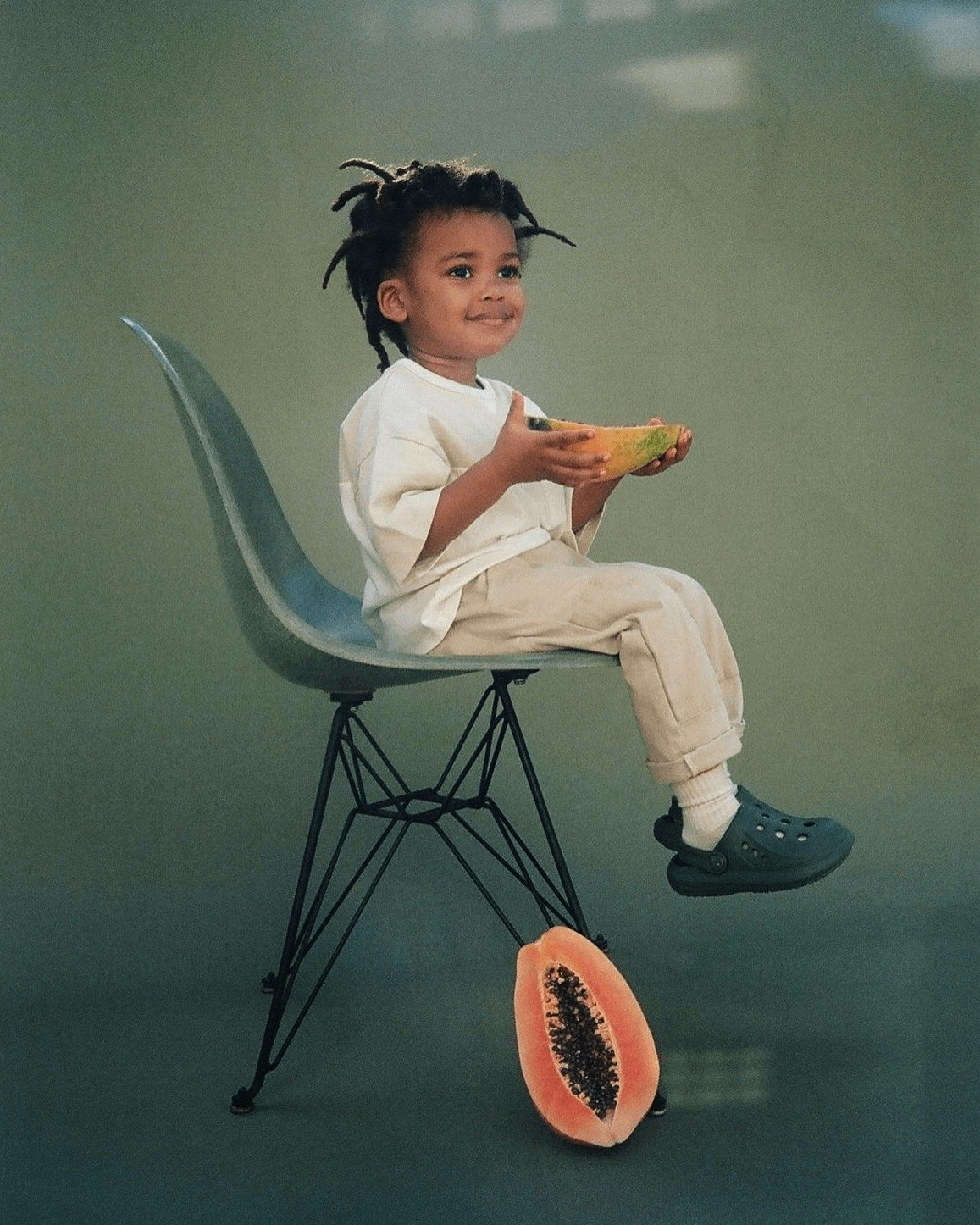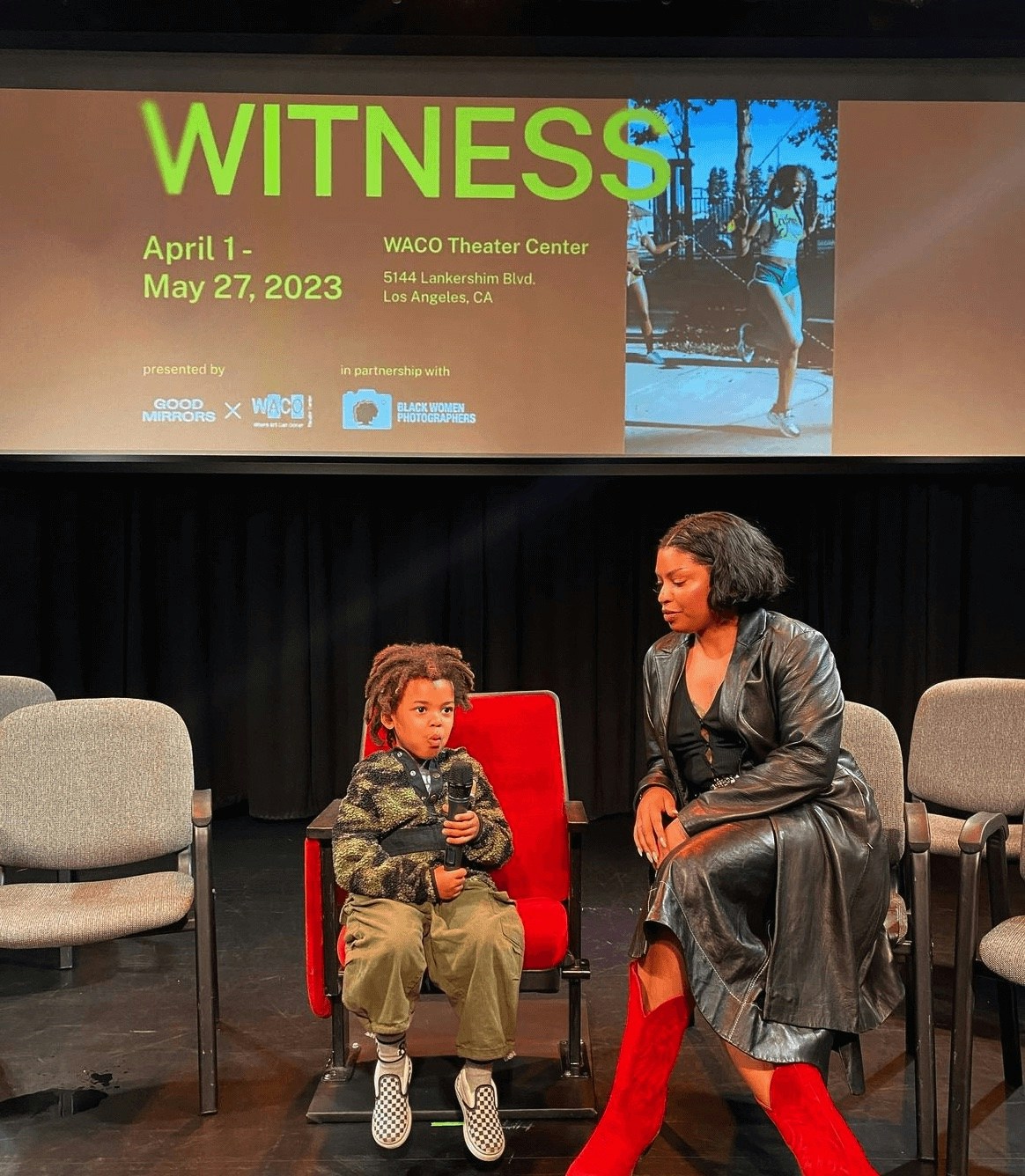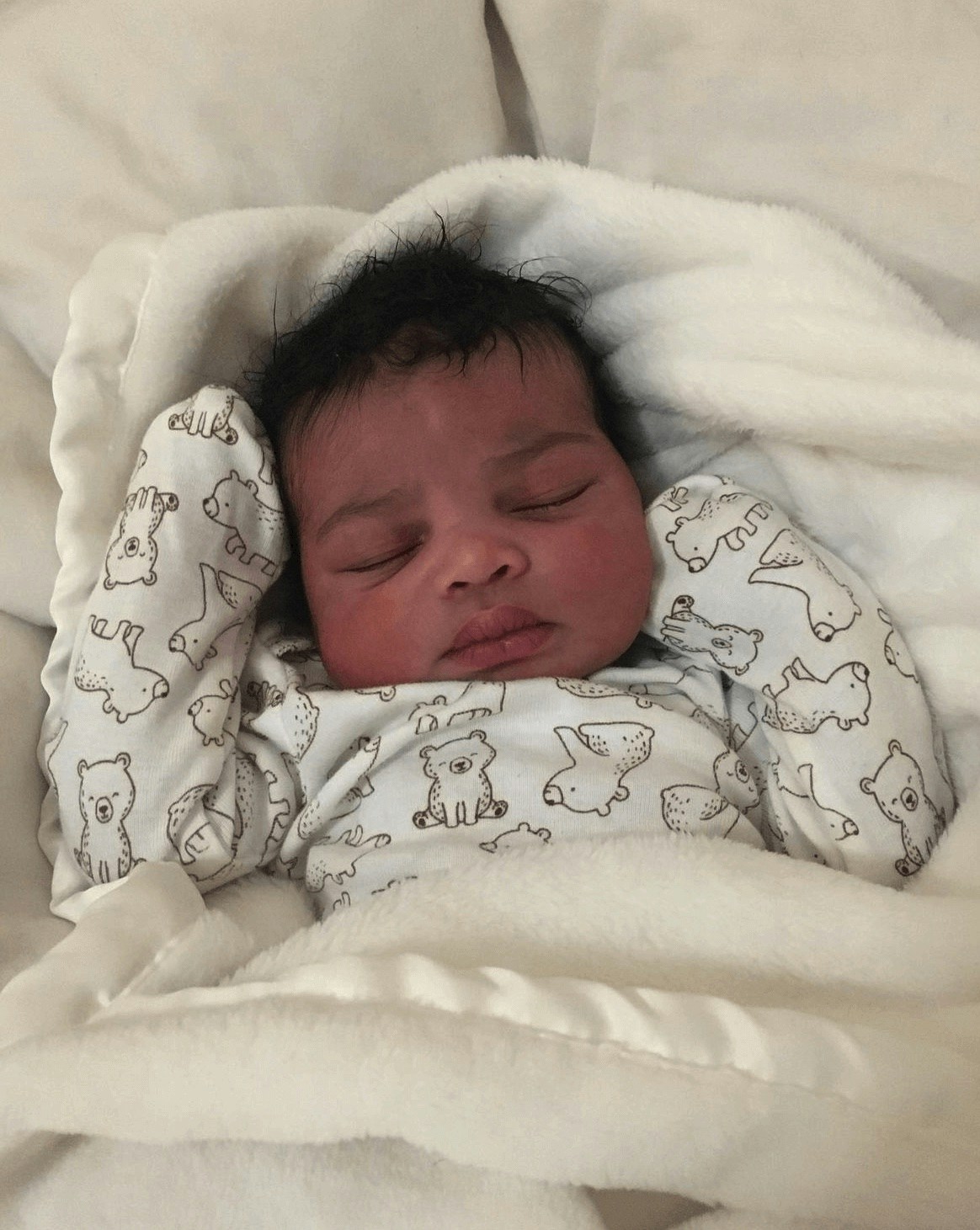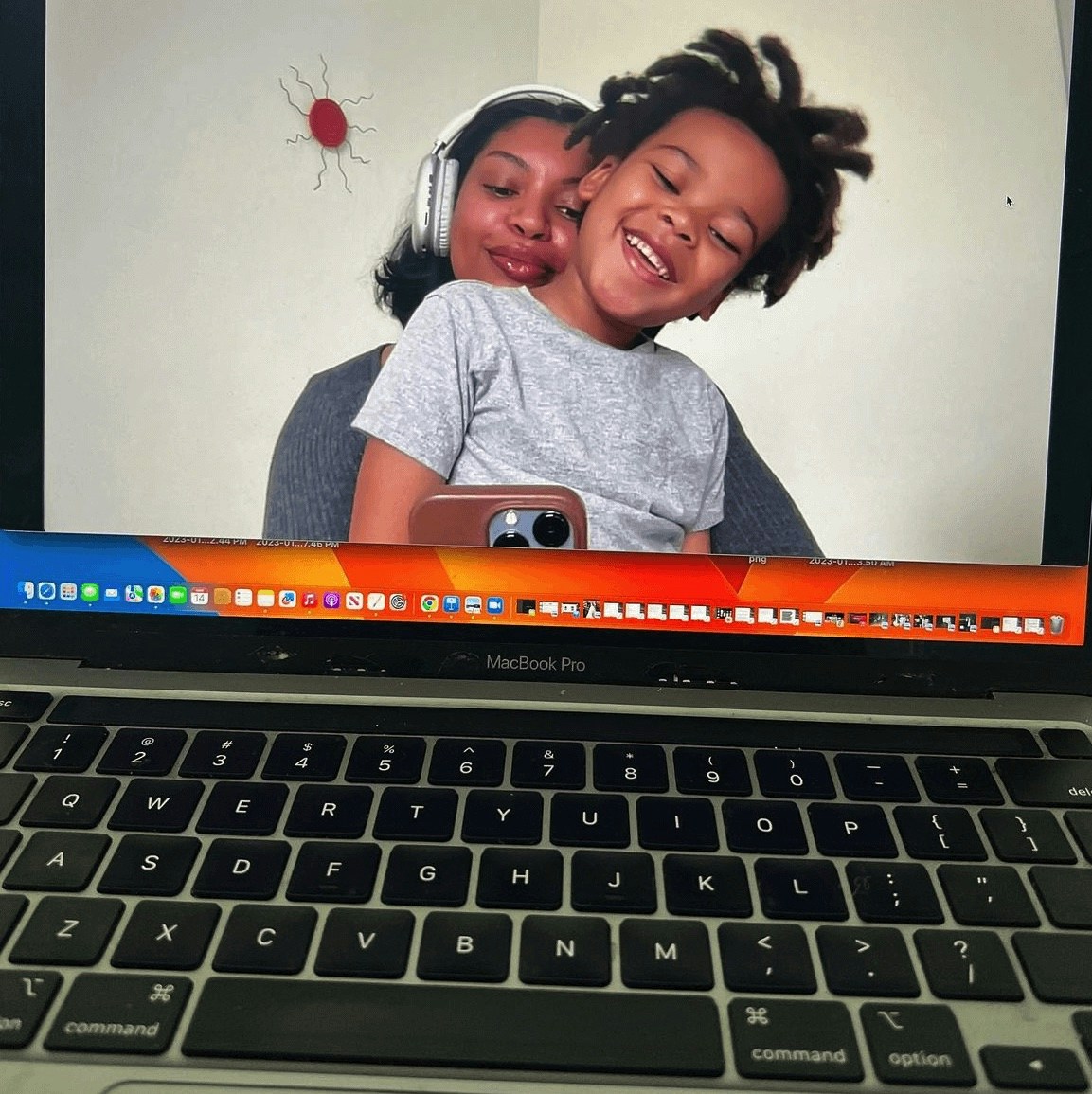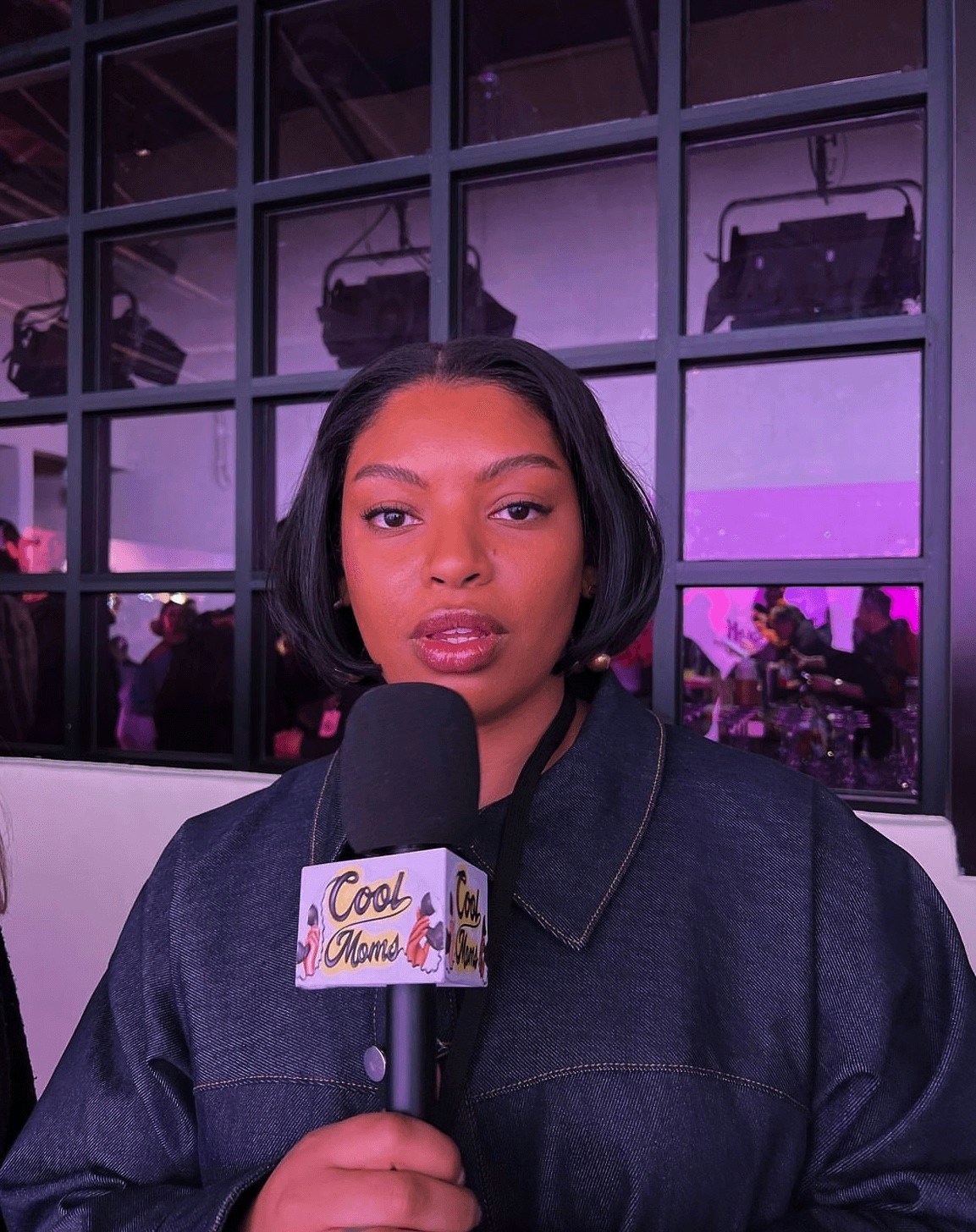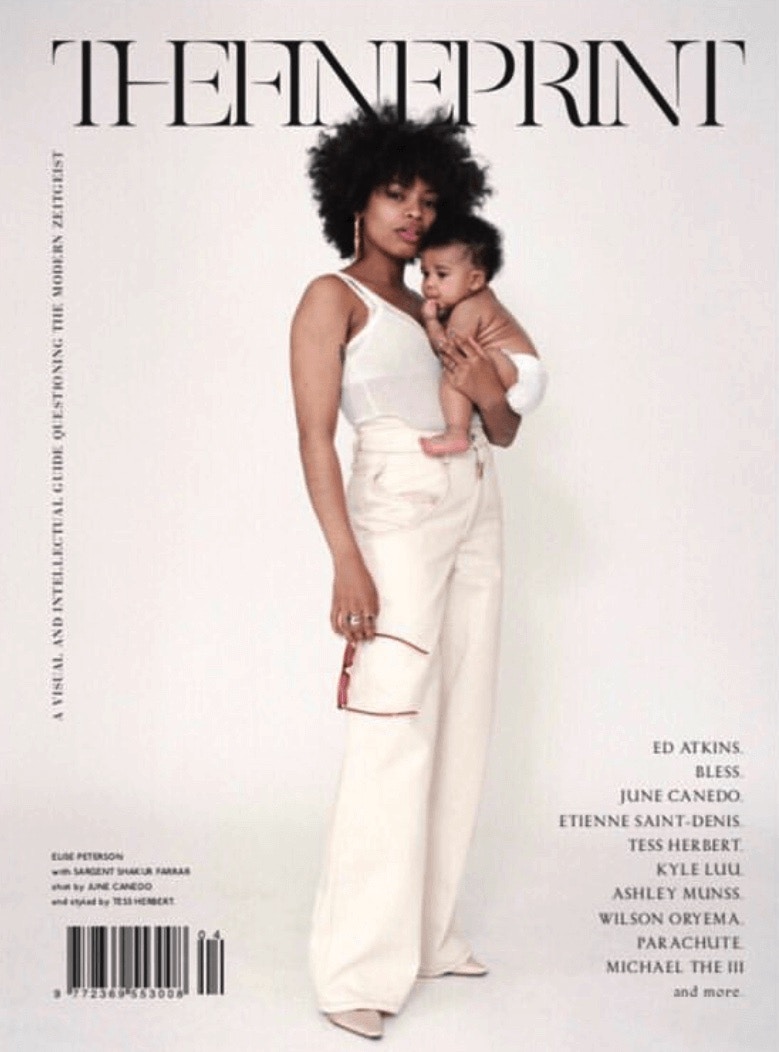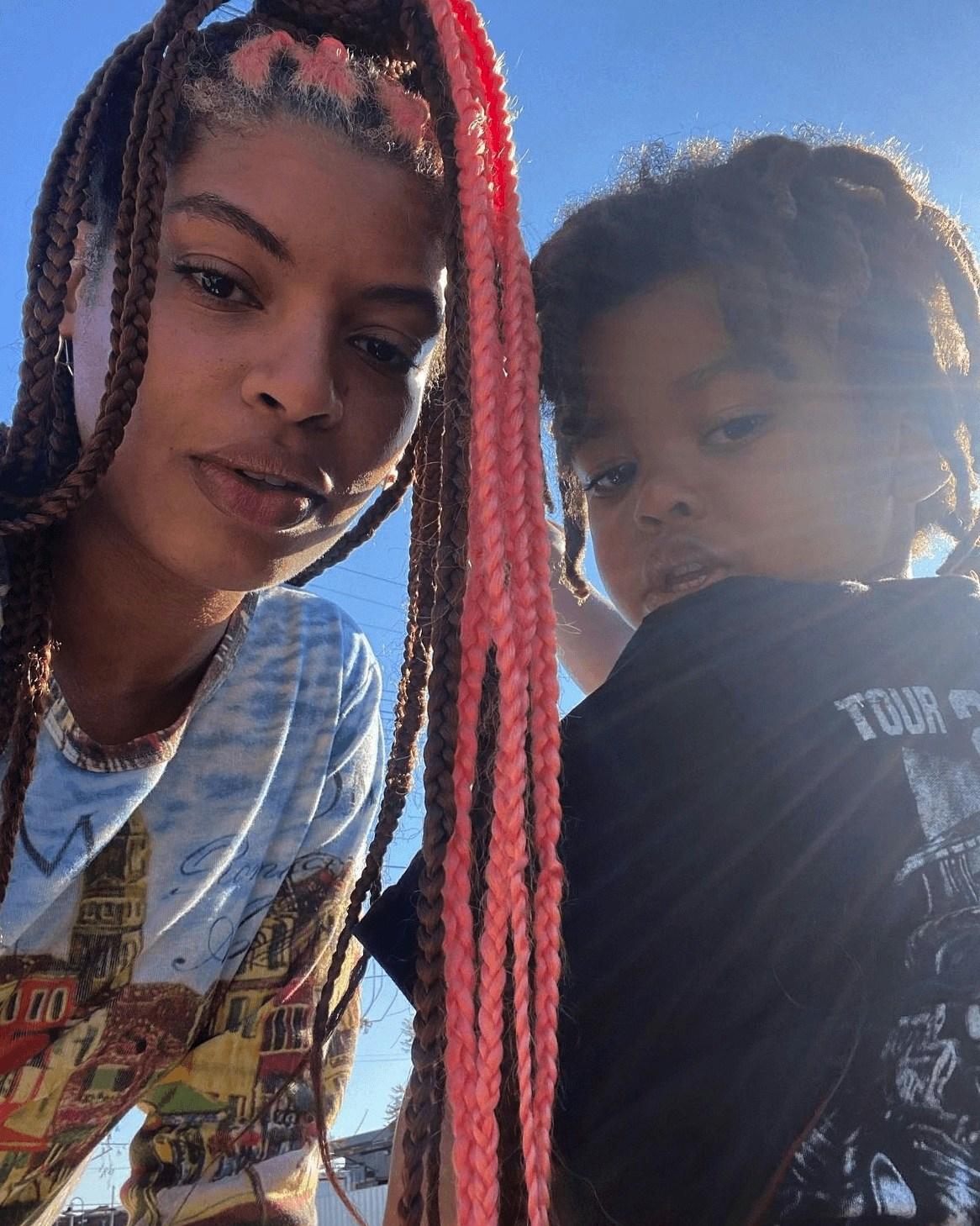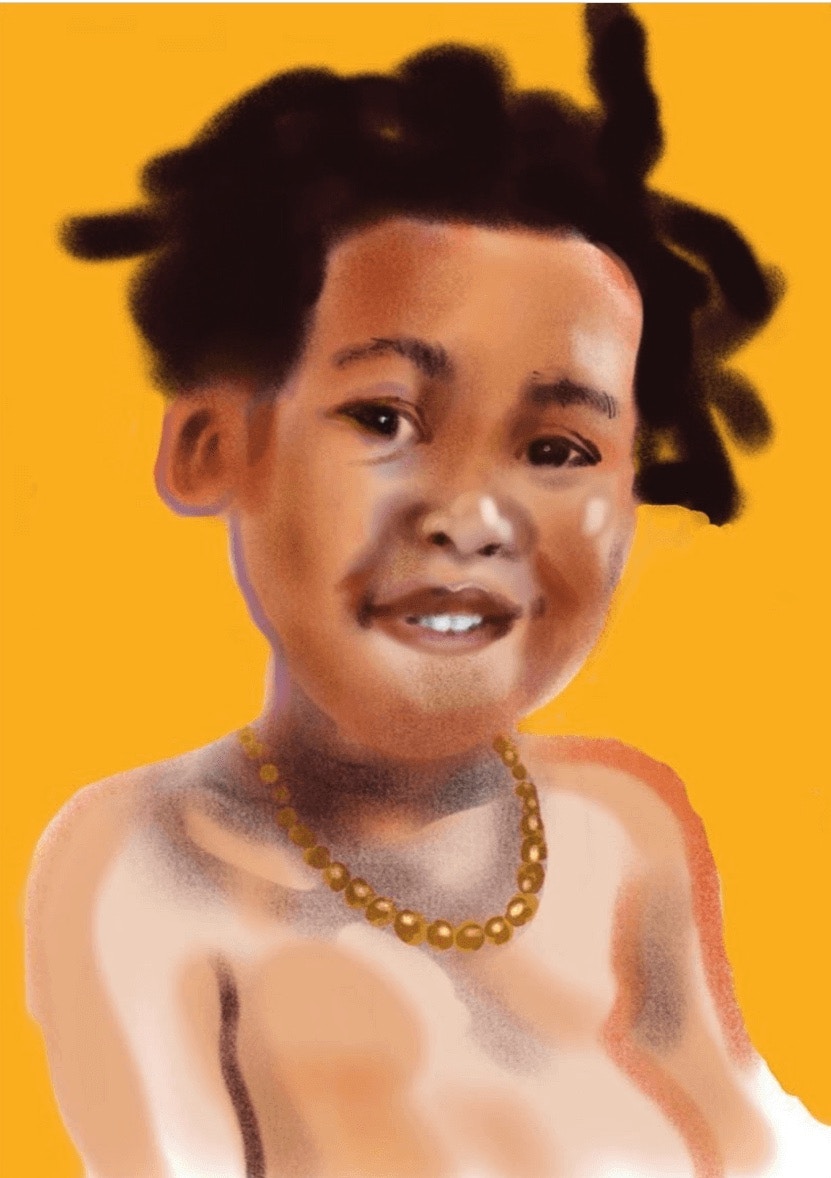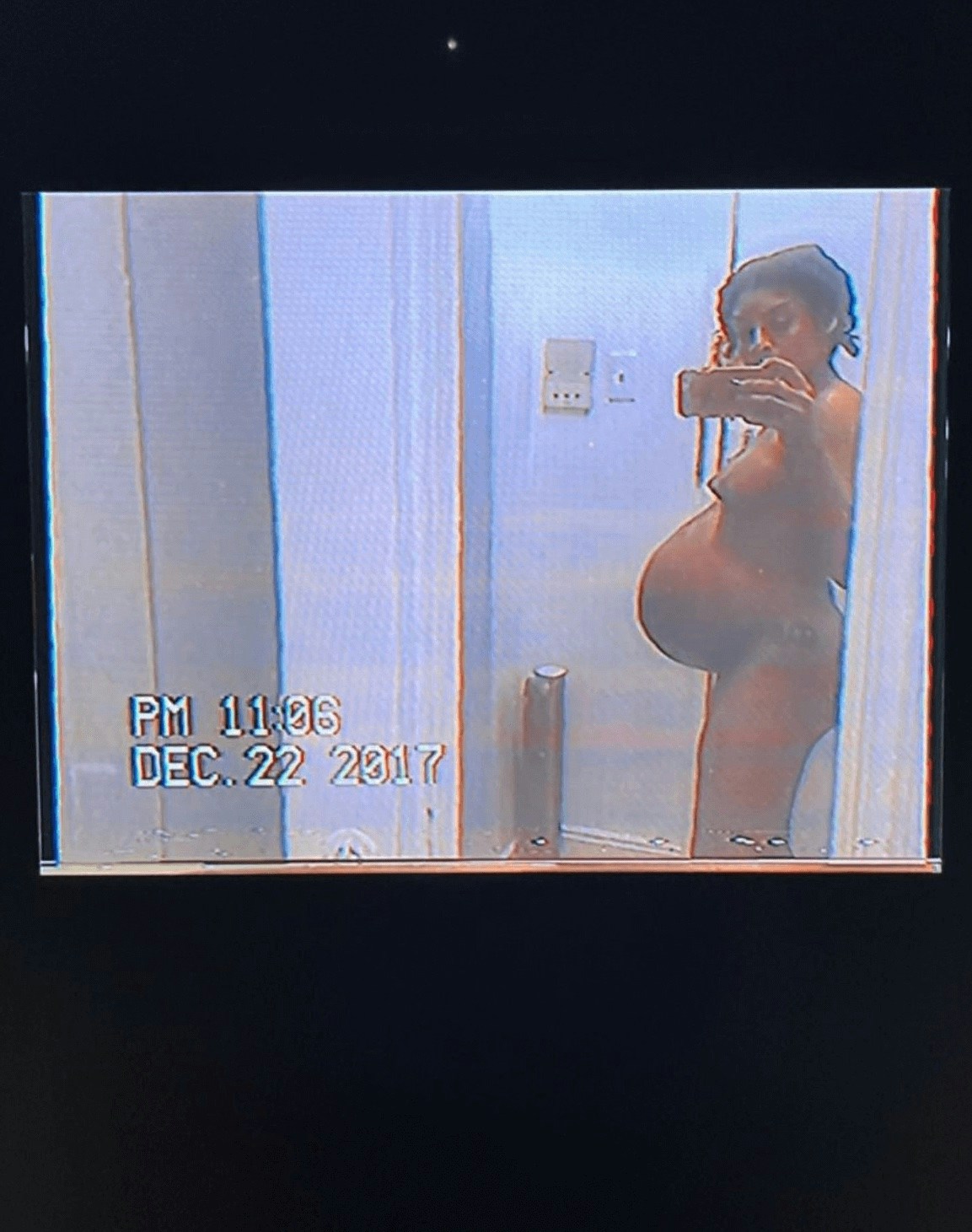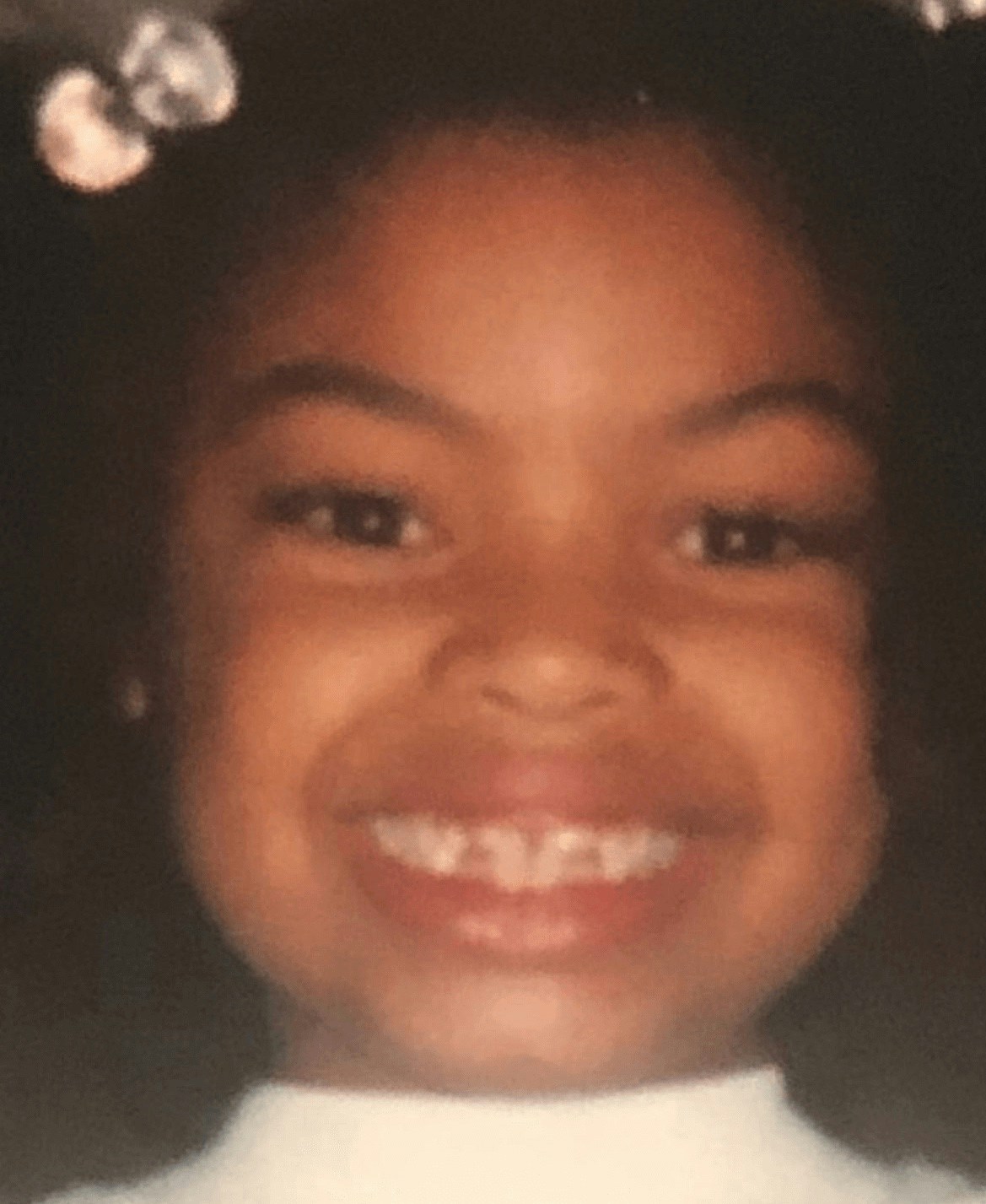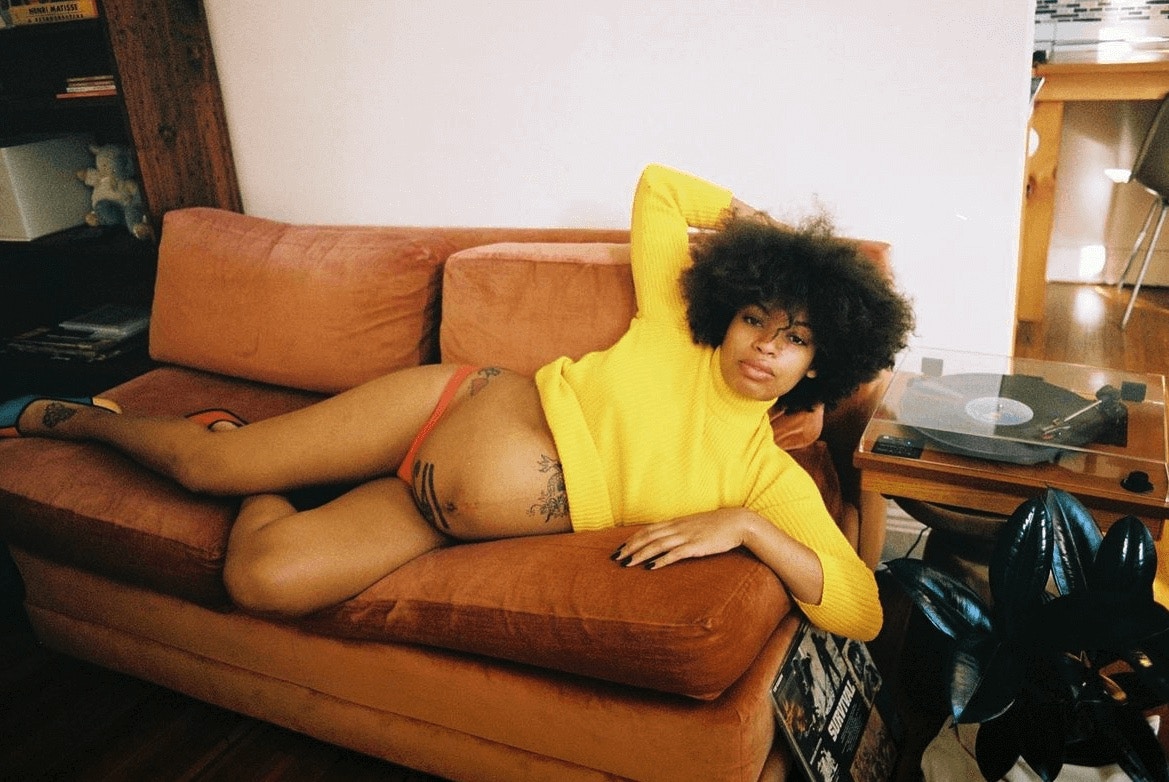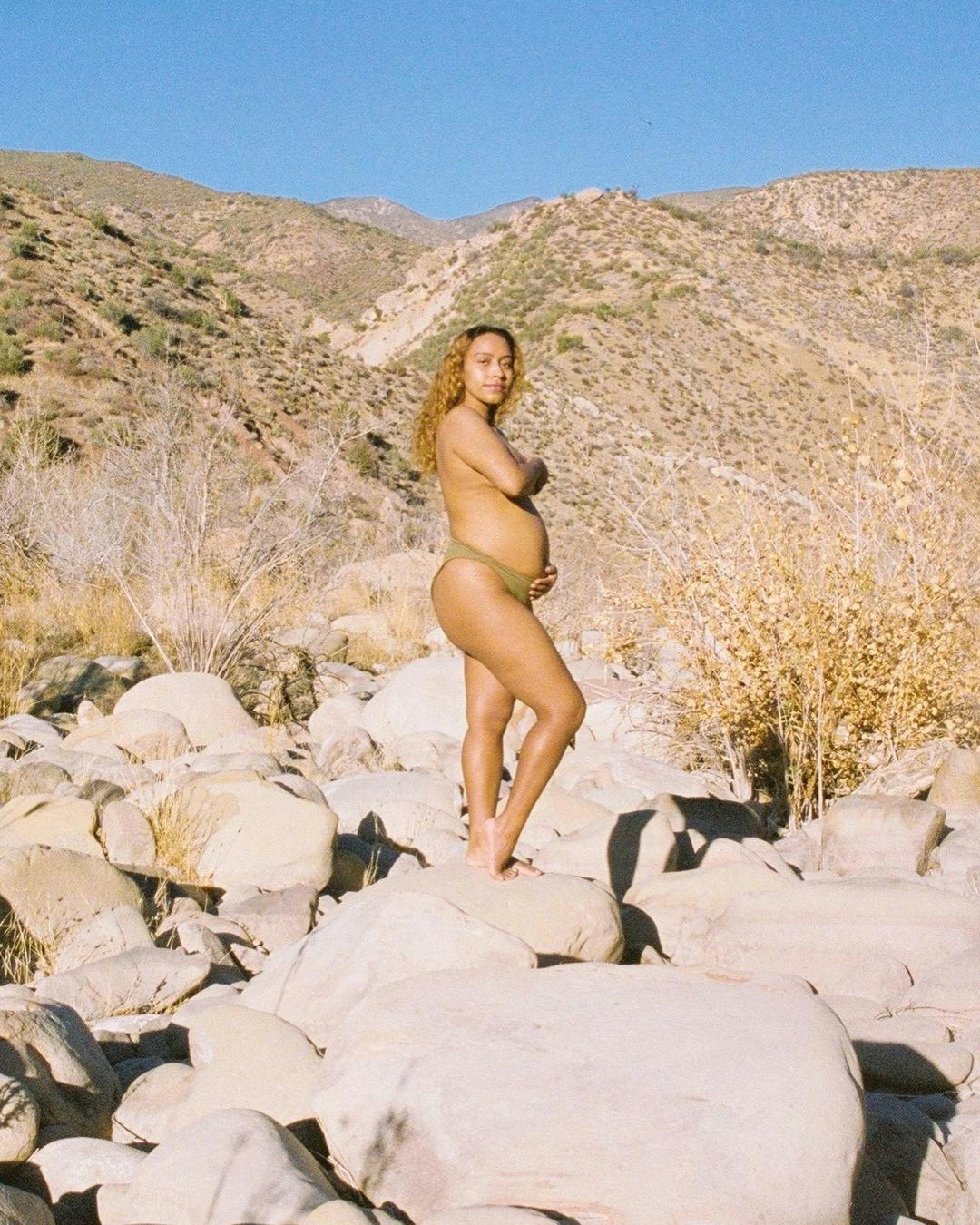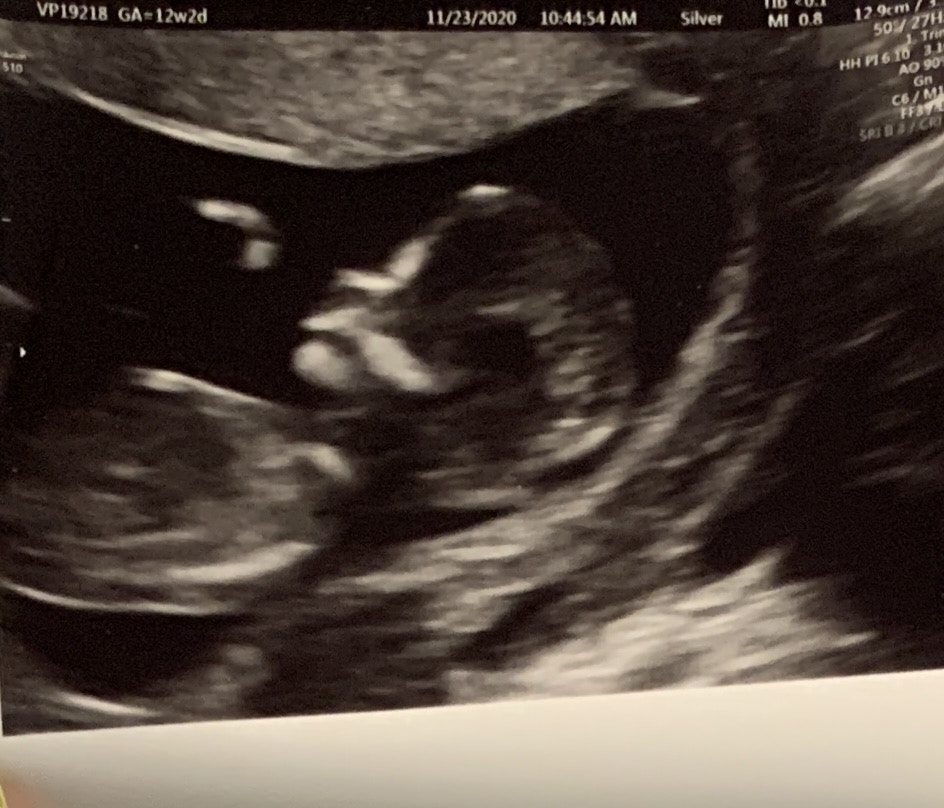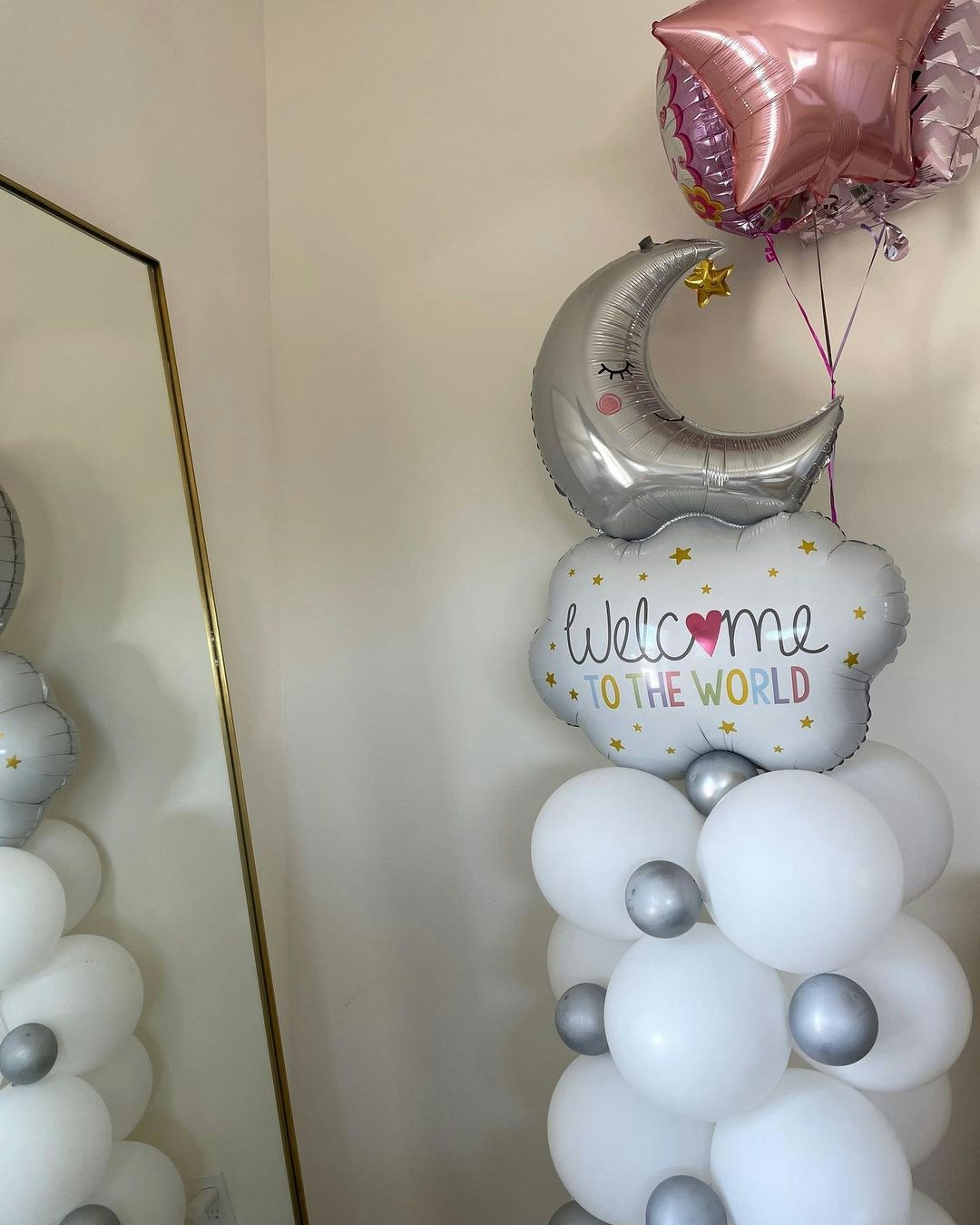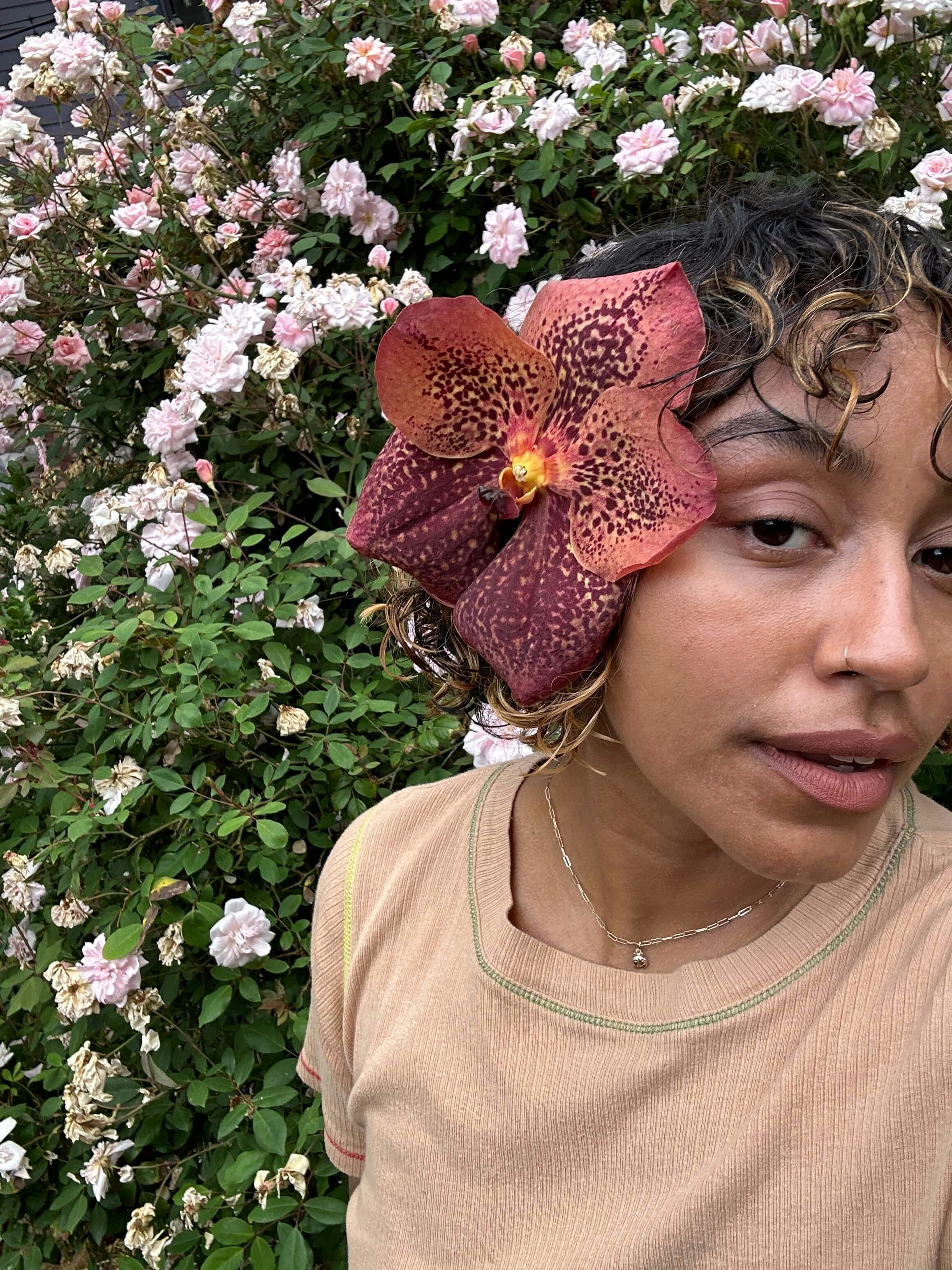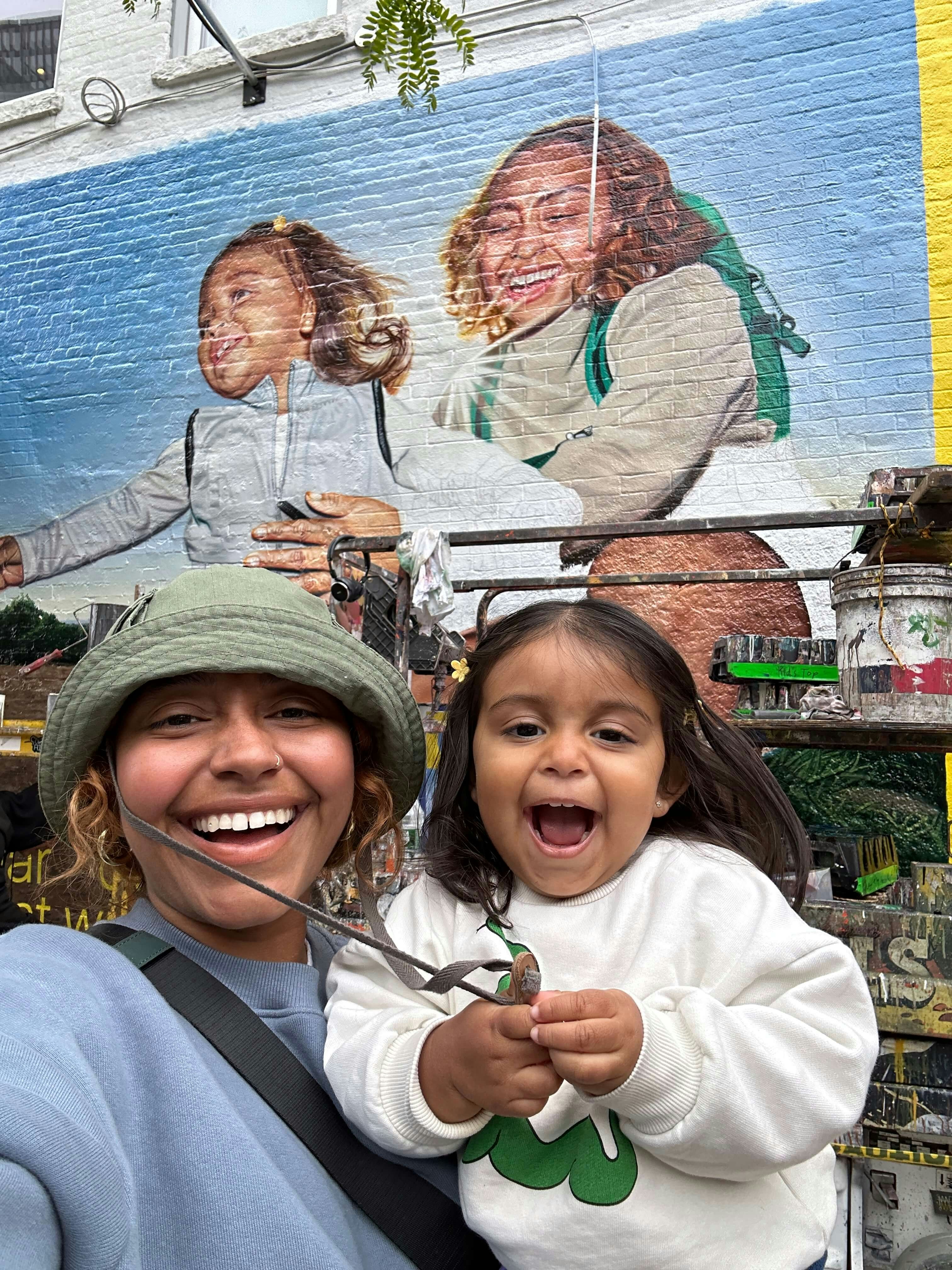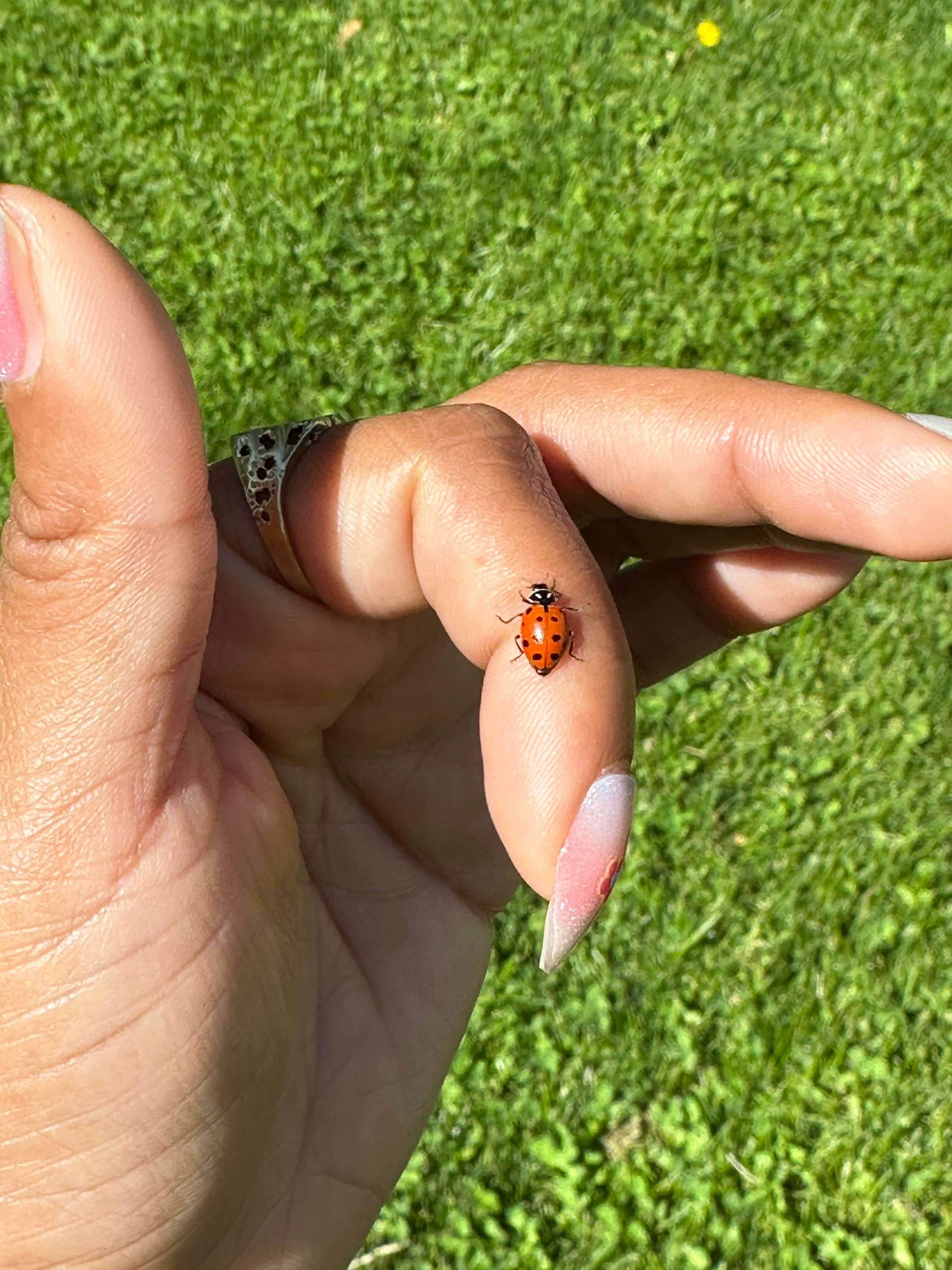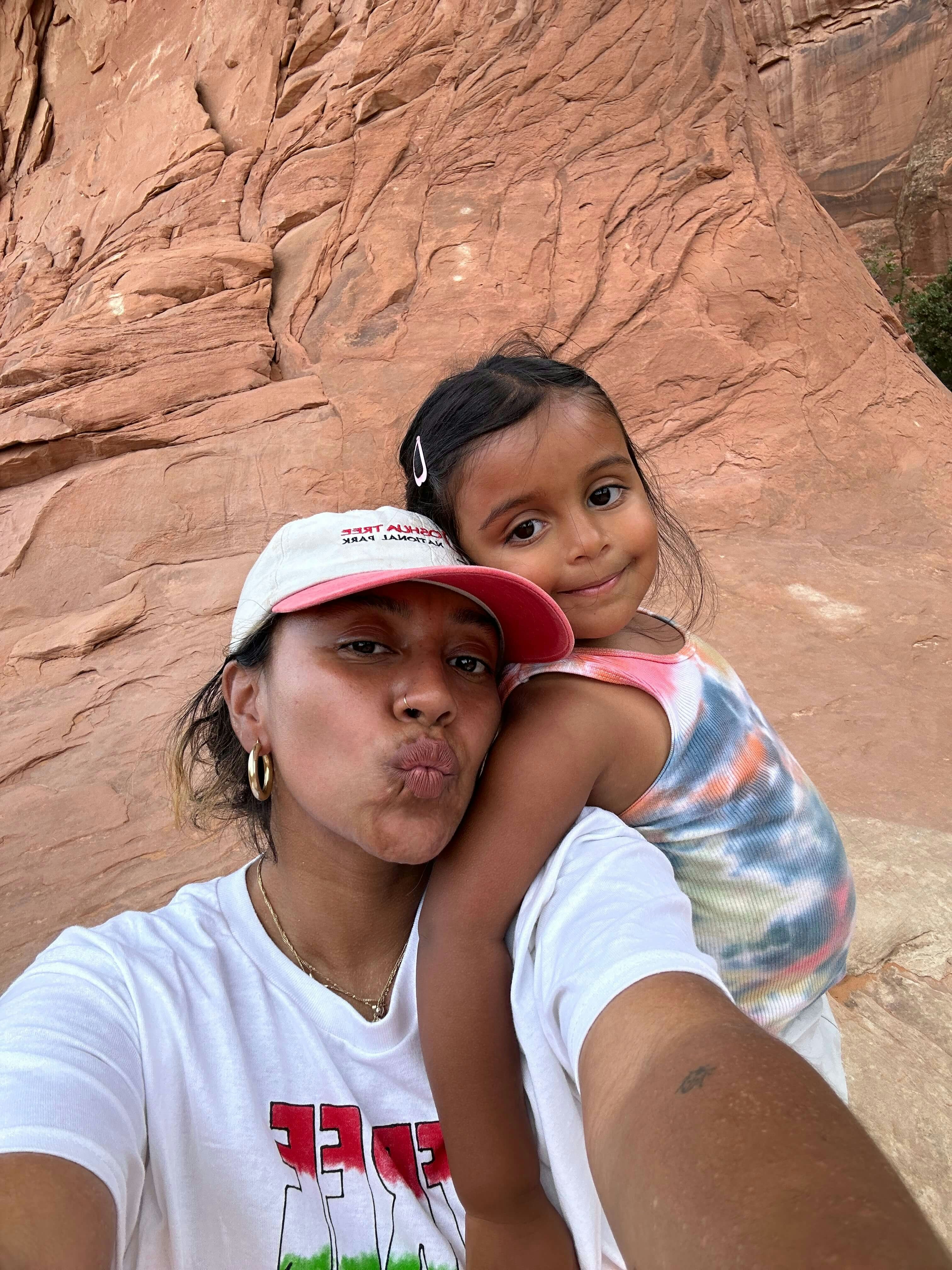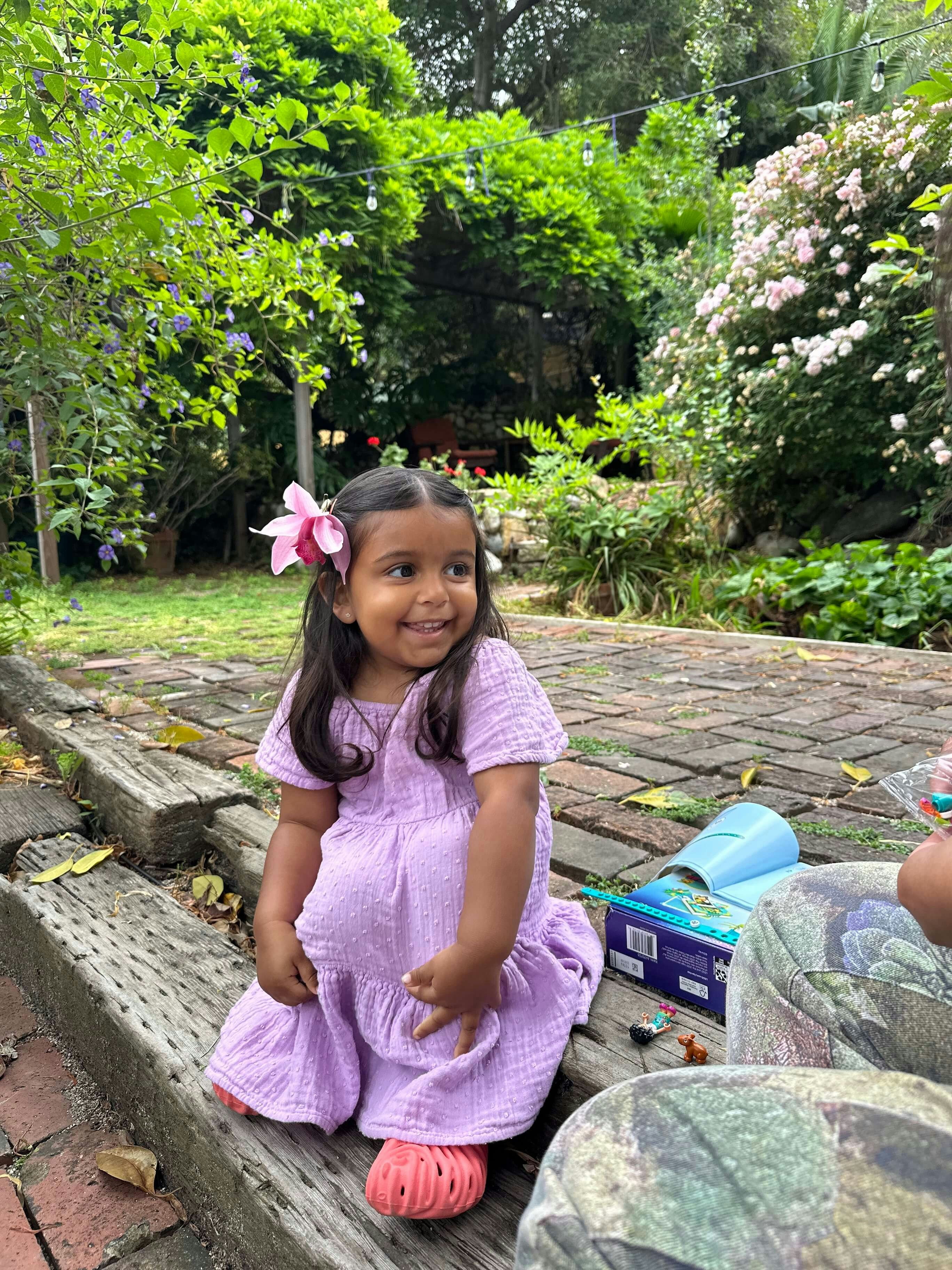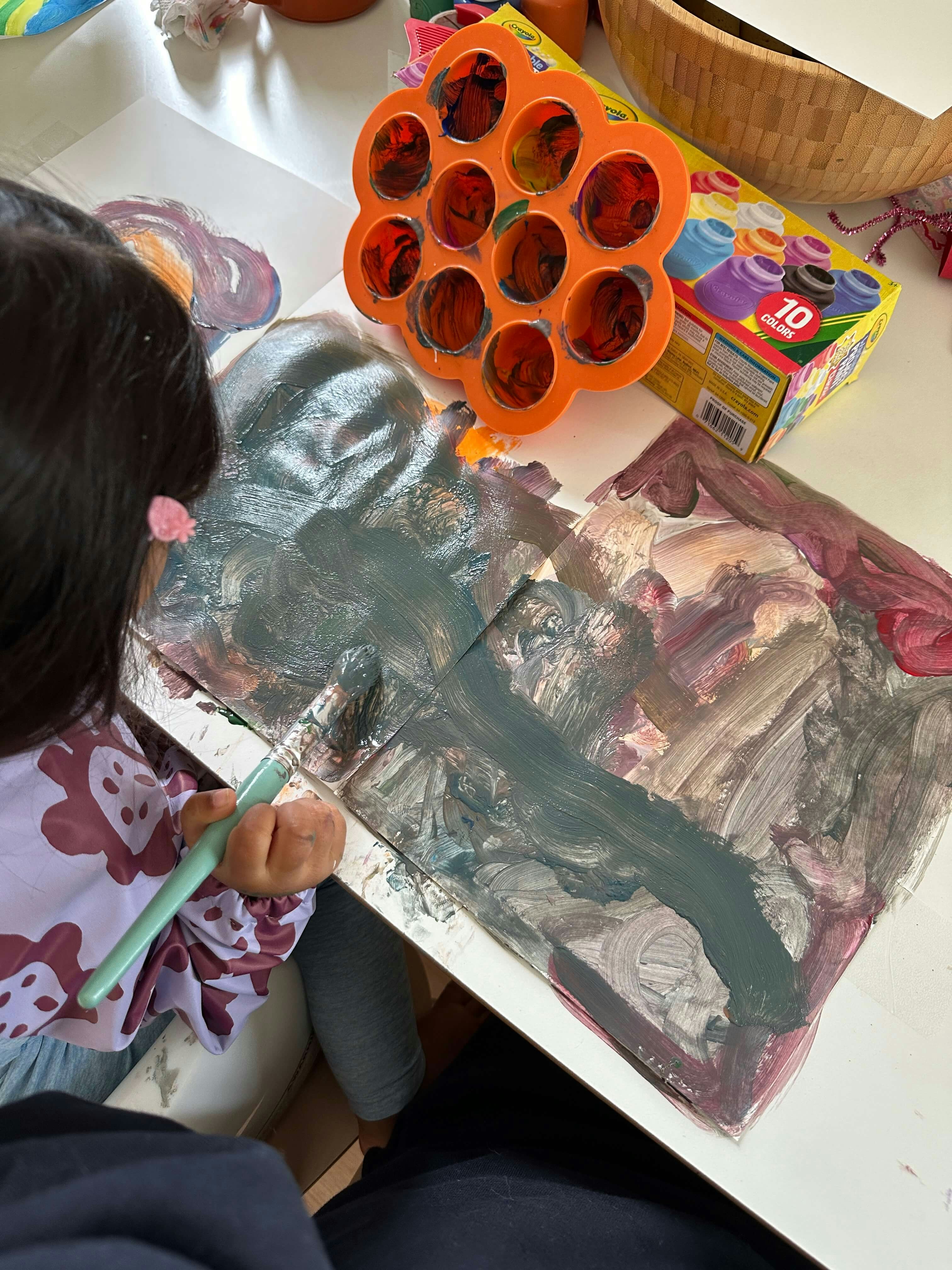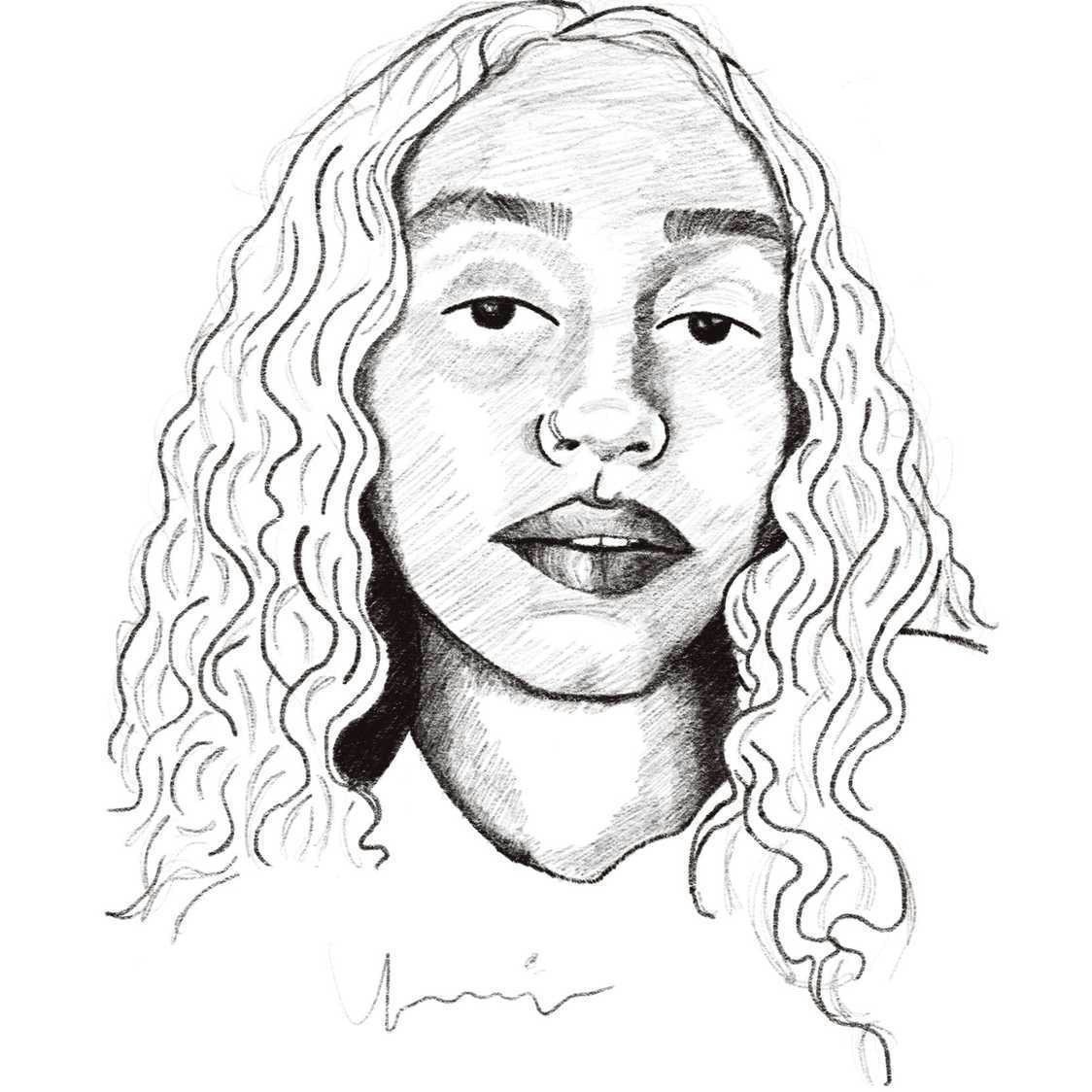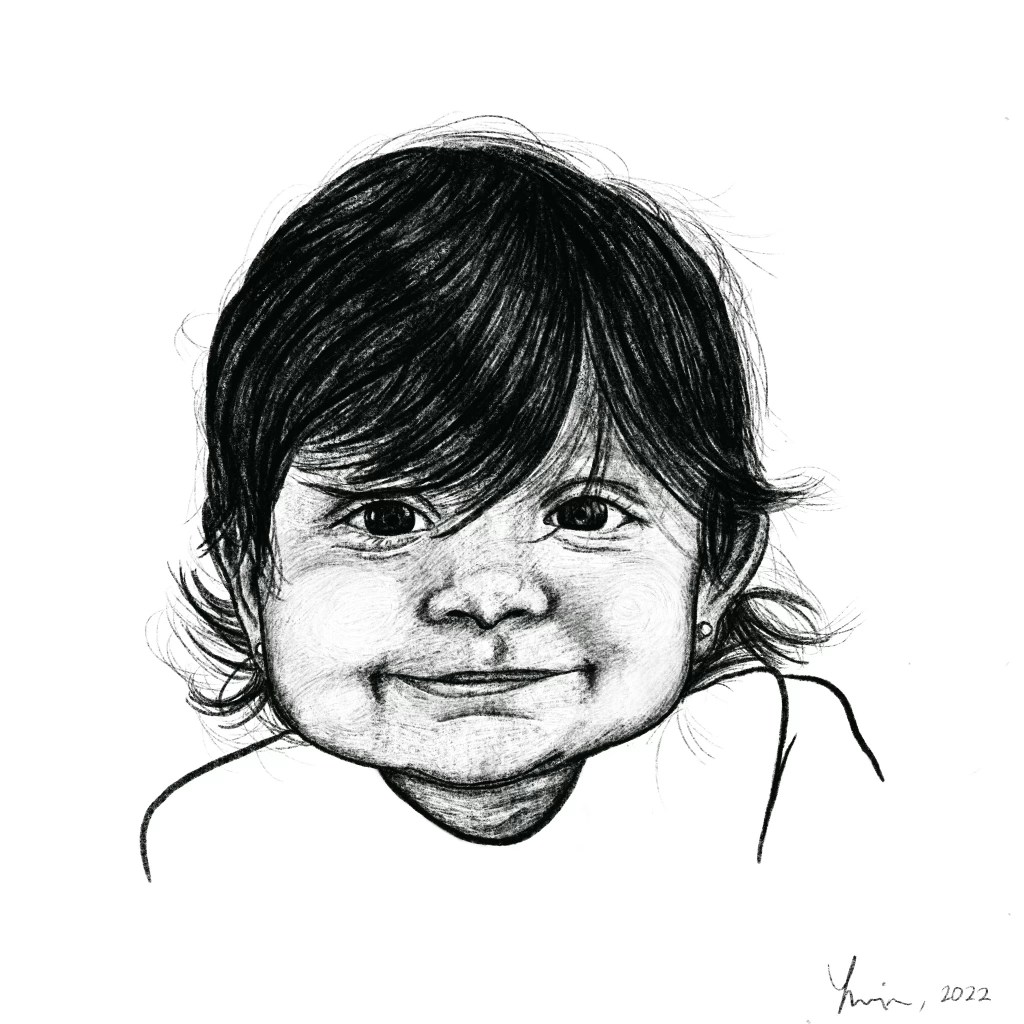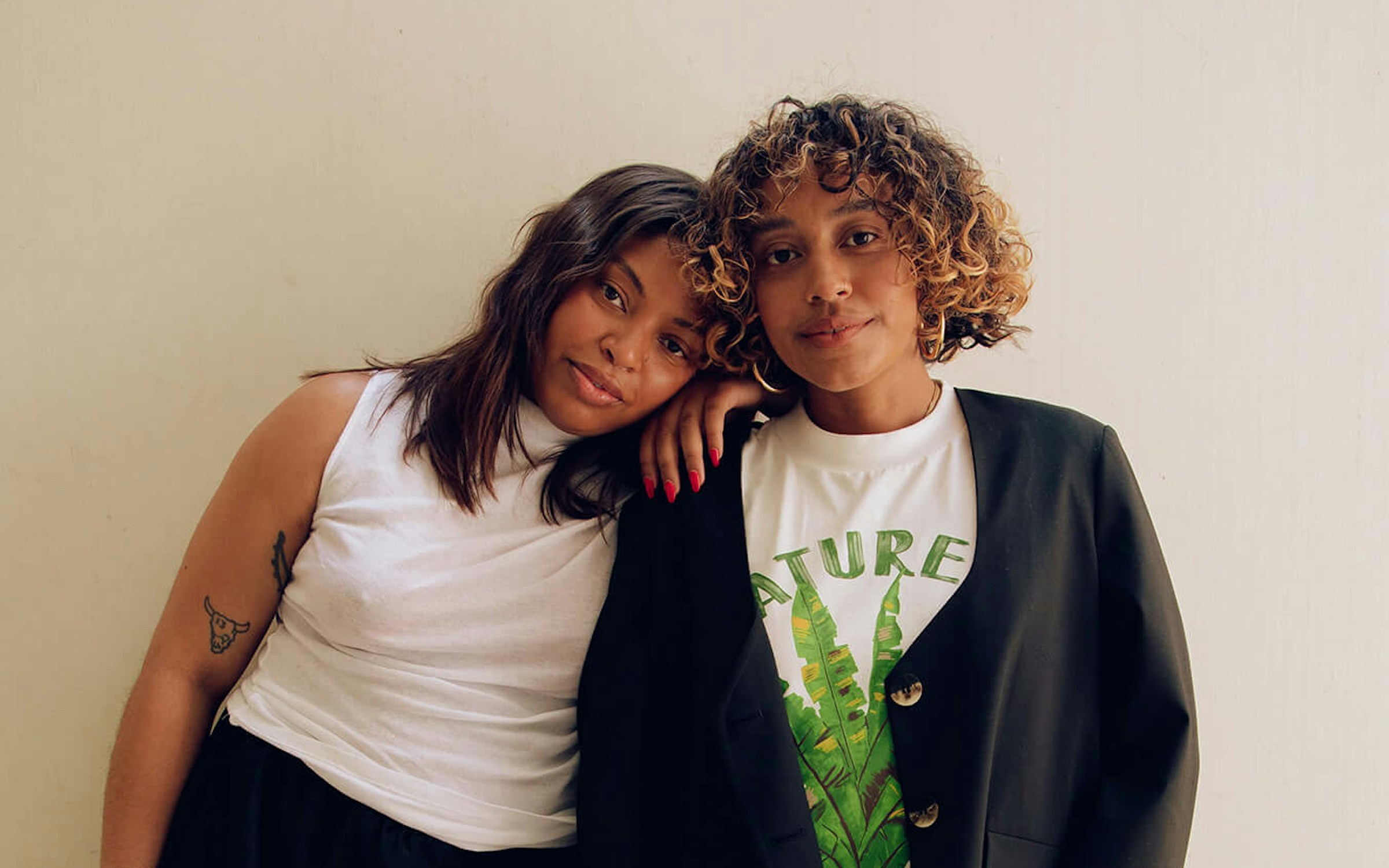
Getting Sticky With: Elise Peterson & Evelynn Escobar
In Conversation: Evelynn Escobar and Elise Peterson
The L.A.-based friends, moms, and co-founders discuss Hike Clerb Sprouts—an intersectional, genderless take on Girl Scouts.
“We always wanted to be camp counselors,” says Elise Peterson. “And here we are… adult camp counselors!” adds Evelynn Escobar with a laugh. The L.A.-based moms and community leaders recently launched Hike Clerb Sprouts, programming aimed at connecting racialized youth with greenspaces. The concept is the intersection of their passions: art and the natural world.
Elise is a visual artist, brand consultant, and host of Cool Moms, a podcast and platform highlighting dynamic mothers who prioritize their passions. After meeting Evelynn through mutual friends she invited her on the podcast, where they discussed her work as founder of Hike Clerb, an intersectional women’s hike club based in L.A. The two women immediately found deep connection over topics like the recognition of one’s life purpose and the liberation of Black, Brown, and indigenous women.
Here, they share how their upbringing has informed their work, raising their children with no concepts of ceilings or limits, and the power of collective care.
[Elise is mom to Sargent, 6, and Evelynn is mom to Isla, 3.]
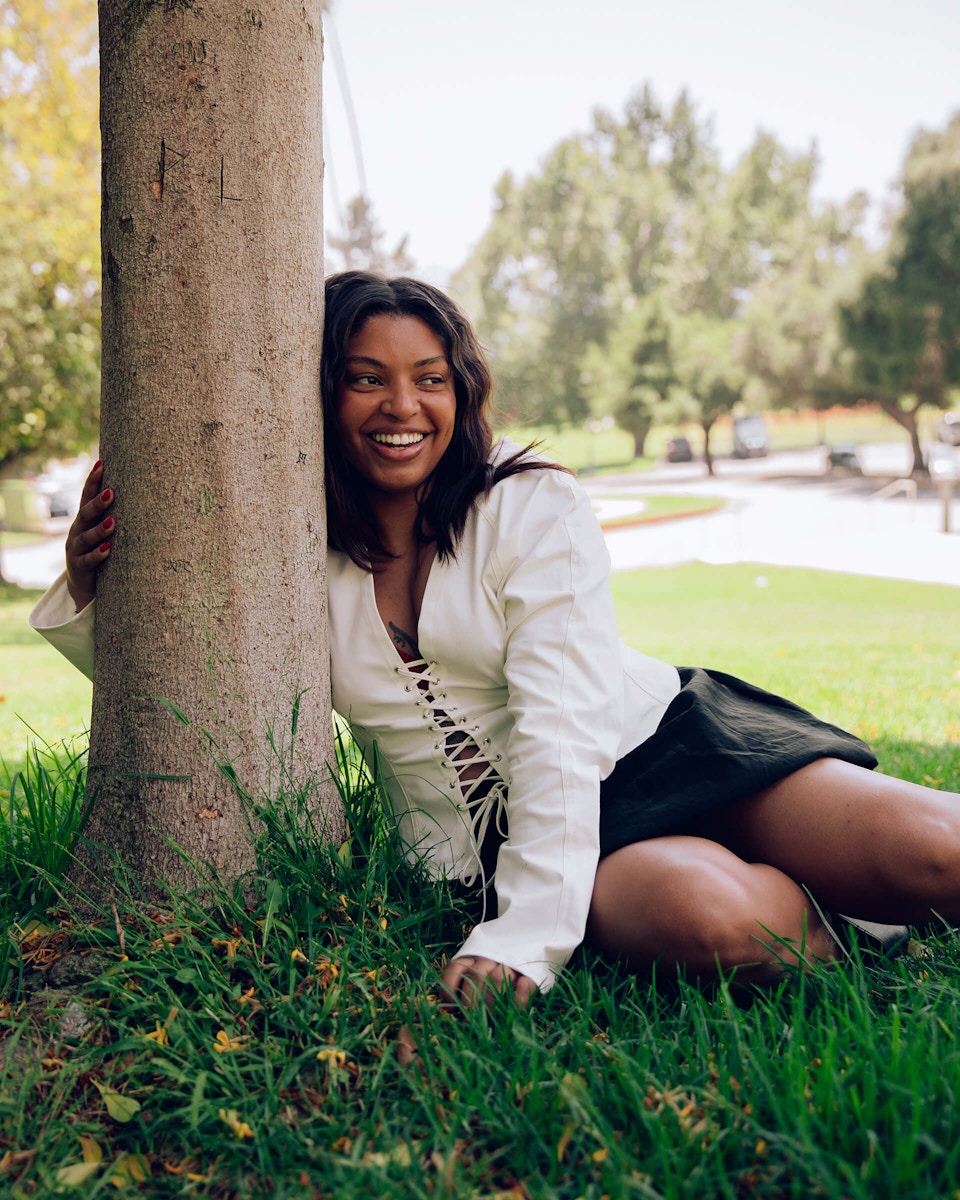
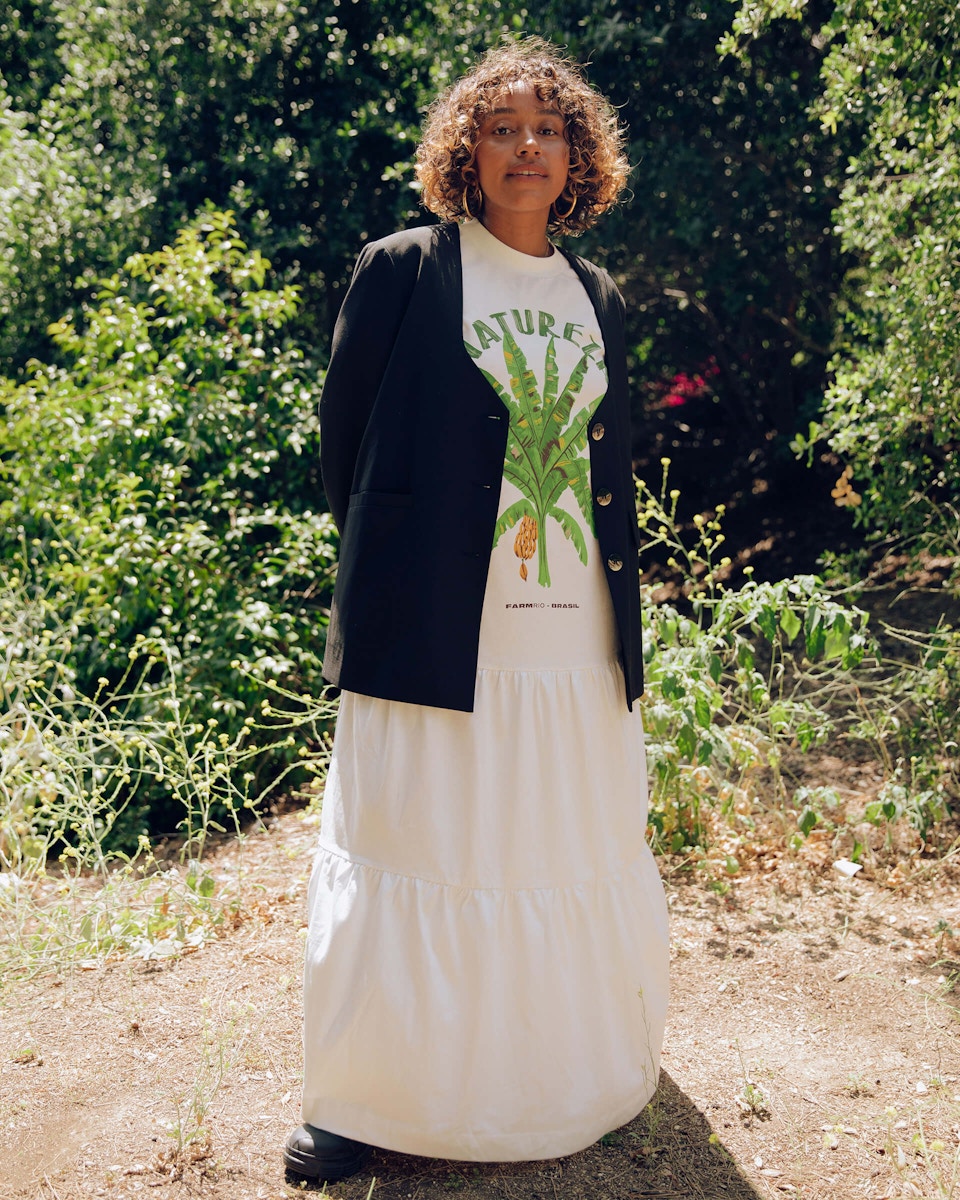
How do you describe Sprouts and its mission?
Evelynn: It's our genderless take on Girl Scouts. With an art component.
Elise: It's an avenue for the liberation—the physical, mental, and spiritual liberation of Black, Brown and indigenous racialized children. It’s an opportunity. It's very much the resource that Evelynn and I wish we had growing up. I think we both have giggled about our obsession with Bug Juice.
Evelynn: Yes! The show on Disney. We have way too much in common. I fucking loved that show. And when she said she loved that show, I was like, oh, we were meant to be…
Elise: Literally. So Sprouts is really the intersection of the two things that saved us: Evelynn's background in green spaces and galvanizing community, and my background in art. We wanted to bring these things together to help the next generation. It functions as a membership program that includes vests, patches, camping equipment rental, and guaranteed access to our six programs.
Evelynn: Regarding the next generation, we’ve been seeing this happen with Sargent with Isla. Hike Clerb events are obviously more geared towards adults, but it’s such a multi-generational experience. Just seeing what it's doing for the kids. Sargent went on the fishing trip with us and to see the progression of him being nervous and scared of these little sardines that we have to pick up and hook to the end to him hooking them for Elise and screaming, go mom! It's really beautiful to experience yourself learning something new alongside your child as they come into their own and being in their body and outdoors and connected in that way. So Sprouts is a very natural progression of what we were already doing. And now it's just bringing more kids and families into the fold. At the end of the day, it's lighthearted, it's joy, it's fun, but it’s also liberatory work, which is I think my favorite aspect of Hike Clerb—it’s radical work. It is very progressive, but we're having fun doing it.
Elise: As for the art aspect, I’ve found as an arts educator for over ten years that it is really such a natural way of self-actualization and expression. All of the things that maybe live dormant within someone, being able to artistically express that, whether it's through the art that they create or are exposed to, is incredible. I've seen the way a kid who has never left his borough in New York is moved emotionally and he goes to a different borough and has an experience with an exhibition at a museum. For me, nature and art are absolutely an avenue of self-actualization. We see ourselves in both. And being able to see ourselves and be affirmed in that way is priceless.
Evelynn: Retweet everything Elise just said. These are just vessels and vehicles for creativity, and ultimately we are approaching it from the sides that we know and feel most comfortable in. Often the invitation is the biggest barrier, so we are really inviting others to be in their fullness in these spaces where maybe they’ve traditionally been excluded. Specifically with the outdoors, so much violence and just so much violence tied to even the inception of the lands that we reside on in the country that we live in. So it's really powerful because it's like a reclamation, but also it's a reconnection not through the land, through art, through creativity, but ultimately to self. If we can give this to kids at such a young age, they are going to be so powerful. Sargent and Isla are sort of the prototypes of this. They have no concept of ceilings, no concept of limits. And so to be able to also foster that and provide that for a larger group and audience—this next generation is going to be so powerful and already is so powerful.

"It's really beautiful to experience yourself learning something new alongside your child as they come into their own and being in their body and outdoors and connected in that way."
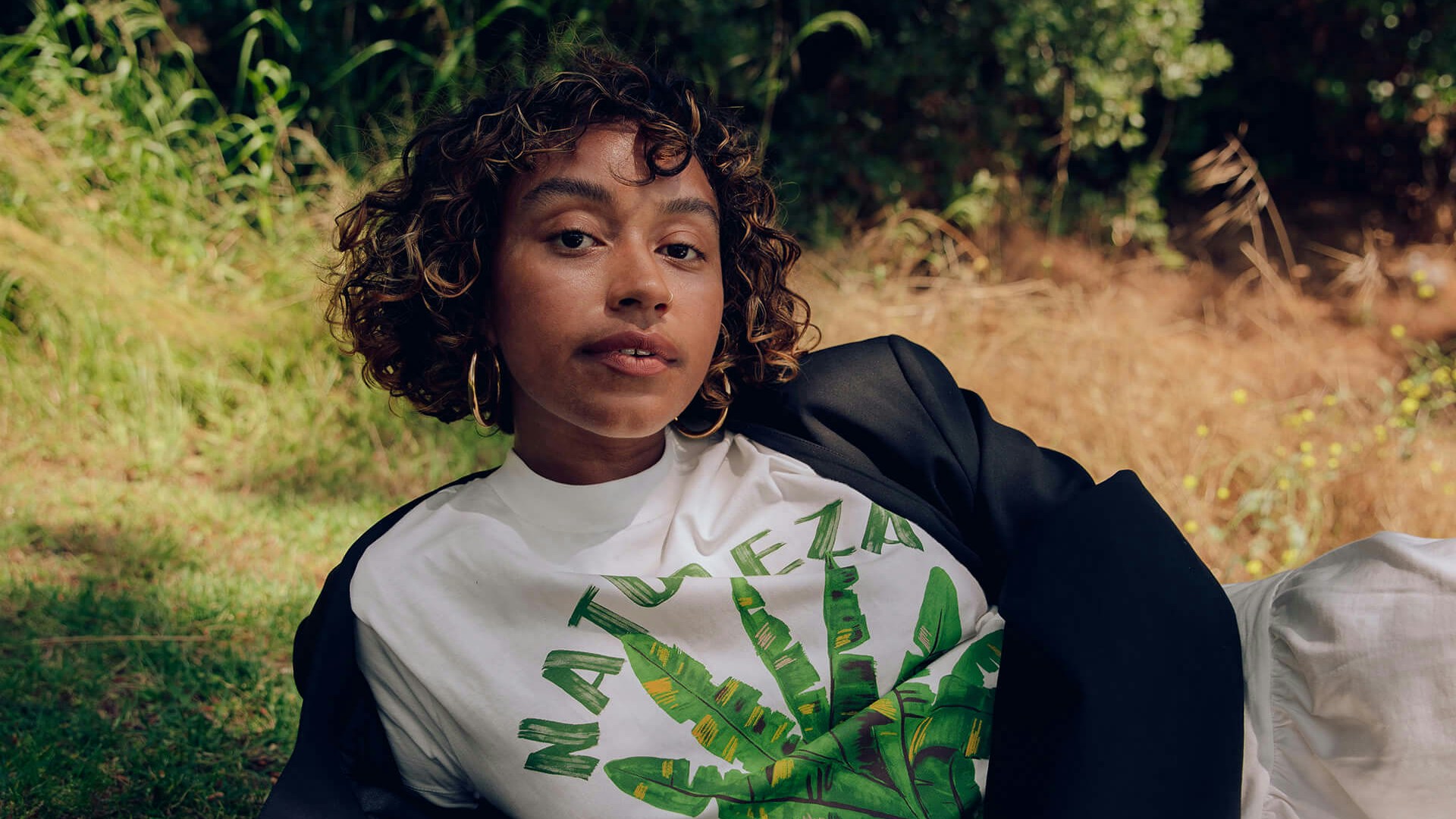
Tell us about the kind of access to nature you both had growing up and how your experiences have influenced what you do.
Evelynn: I grew up in the suburbs of Washington, DC and Northern Virginia and would play outside with friends. My fond memories are of playing in the creek in the woods. I always elected to take the art classes, but it was never something that was super affirmed. Neither was the outdoors, which is so crazy because I grew up an hour away from Shenandoah National Park but always thought it was four hours away. I think that was just the narrative that I made up. And granted, part of the reason why is because it was one of the last segregated national parks in the United States, and there's a whole history about Lewis Mountain, which was the only mountain where Black people were allowed to go. I'm actually going back to Virginia next week, and I'm like, we're going to Shenandoah National Park. I’m finally going to have this experience with this place that has literally been in my backyard. It's really crazy because the culture of the outdoors for recreation where we grew up is just so vastly different from somewhere like California. But obviously the intention that we have in doing this [Sprouts] is so that even people who are in our old neck of the woods or wherever feel welcomed, feel like they belong because they inherently do. It's just this unnatural separation and disconnection that leads us to thinking a national park that's an hour away is four hours away.
Elise: I spent a great deal of time outside growing up. As an only child I had to figure out ways to entertain myself. I would explore the green spaces around me, go on adventures with the kids in my neighborhood where we would dig up whatever we would find for hours, ride bikes alongside creeks, or just play in the yard. The most special green space to me growing up was Rock Creek Park in DC. It’s still a place that makes me feel close to God.
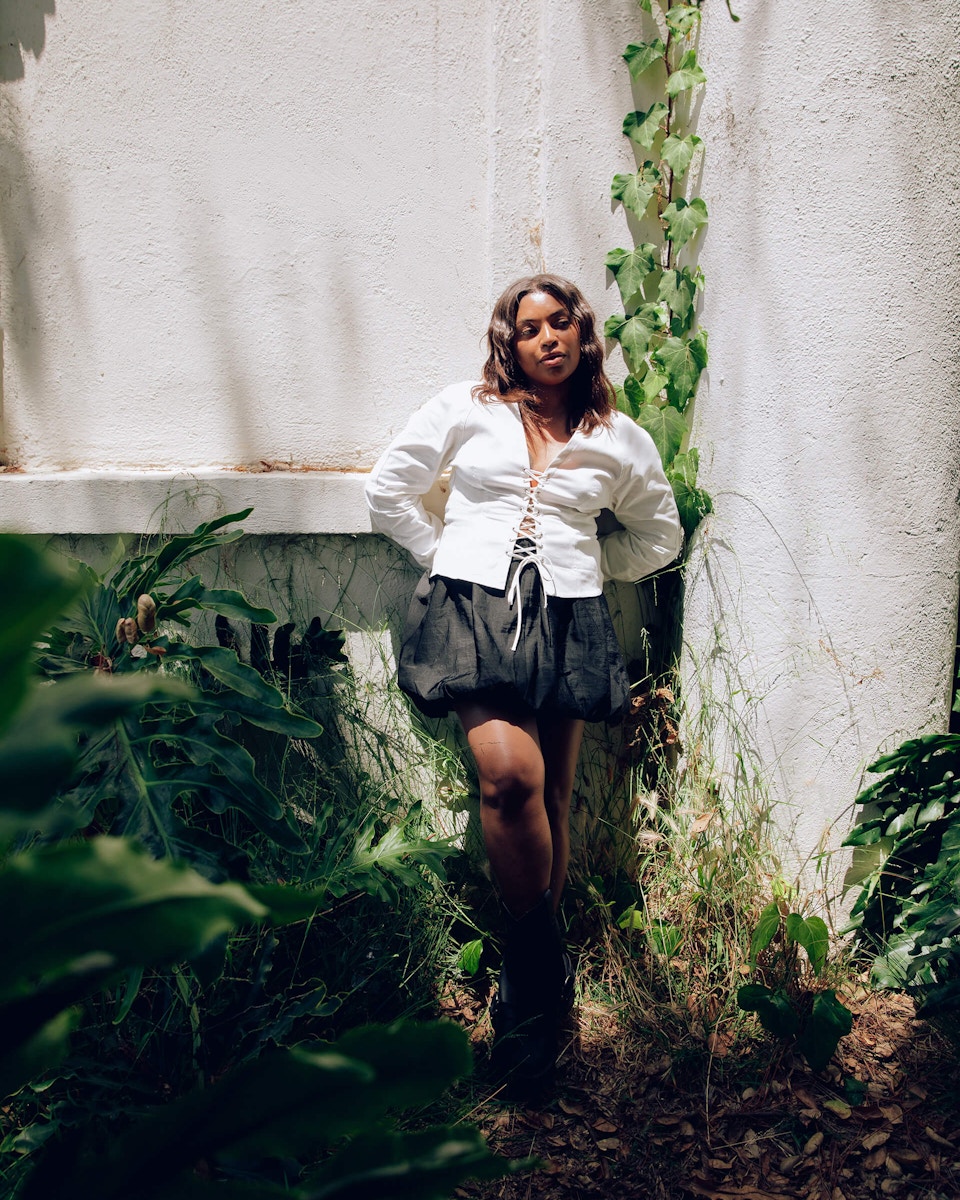
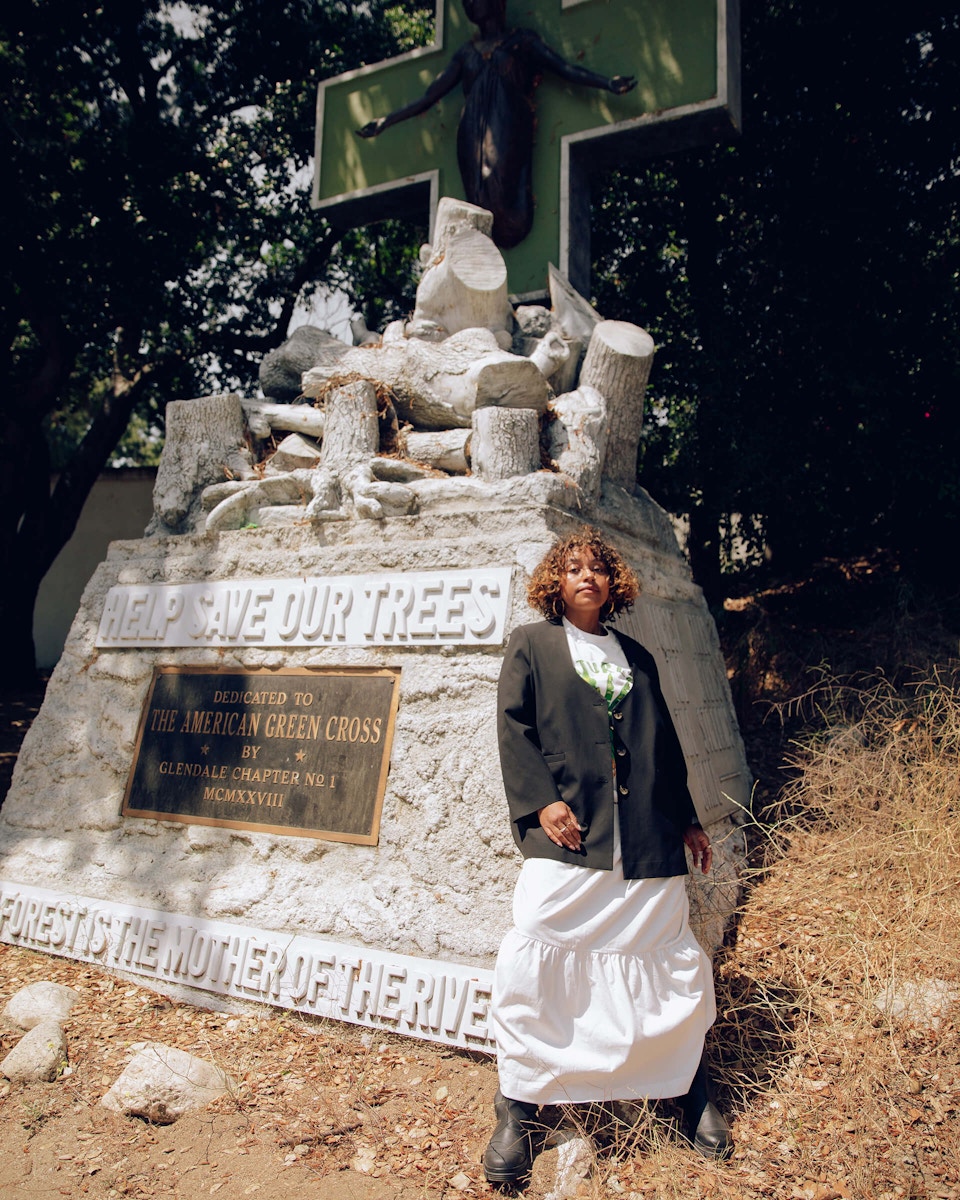
What does community mean to you both as mothers and in the work that you do with Sprouts?
Elise: What comes to mind is that community, in many ways, is the people who can see you, especially when you can't see yourself. In its most ideal form, I think community is the people who you align with and who match your highest frequency, like our self actualized adult selves find each other.
Evelynn: Community nowadays has been so commodified just because you say community doesn't actually make it community. You can say it until you're blue in the face, but if there is no care, if there is no investment and it’s not rooted in generosity and giving—not to receive, but to simply give in your unique way—then it's not community. Community in its truest form is collective care. These are the people that you invest in. You care about their wellbeing, even when they don't. It’s wanting to see people succeed and giving them the tools and the experiences so that they can do so. You have to really care about the people and the planet and yourself, but it has to be connected through care. If it's not connected through care, then it's not really community.
How has motherhood shaped and shifted your identities?
Elise: I feel like myself, who I was before, but a better version. Someone who is more selfless, more focused, more on my path and in alignment. As a wild twenty something in New York who got pregnant, the stars may not have seemed aligned, but everything came together. And Sargent truly is the physical manifestation of all that is good that I have to give the world. So I feel very grateful to have him and be his guide in this world, and have him be mine.
Evelynn: I think that is what initially drew us to each other because yeah, I totally reiterate that. I feel like the best version of myself, but it's not simply because I had this beautiful pregnancy and I'm floating and everything's wonderful. No. I had to confront the hardest shit in my entire life from the minute that I knew I was pregnant. You either sink or you swim. You either rise to the occasion and you face it head on, or it rolls over until you're finally ready to do it. Motherhood made me more courageous. Motherhood made me even more of myself. I feel like a more evolved version of who I already was, which was already pretty fantastic. Now I just feel so powerful. I feel so in my body. I mean, I remember even after giving birth to her at home in my bathtub going back to my bed, and feeling so unstoppable.
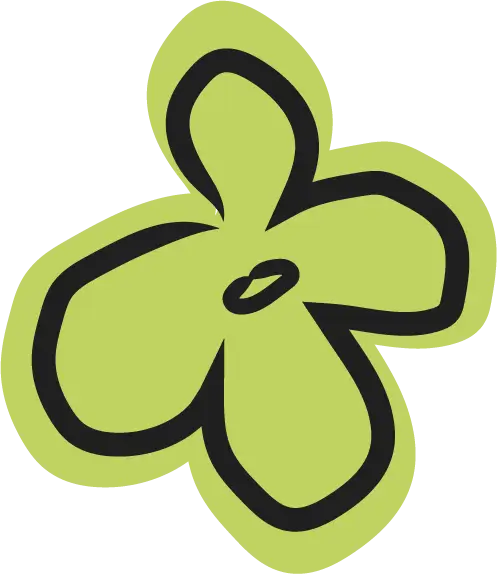
"Often the invitation is the biggest barrier, so we are really inviting others to be in their fullness in these spaces where maybe they’ve traditionally been excluded."
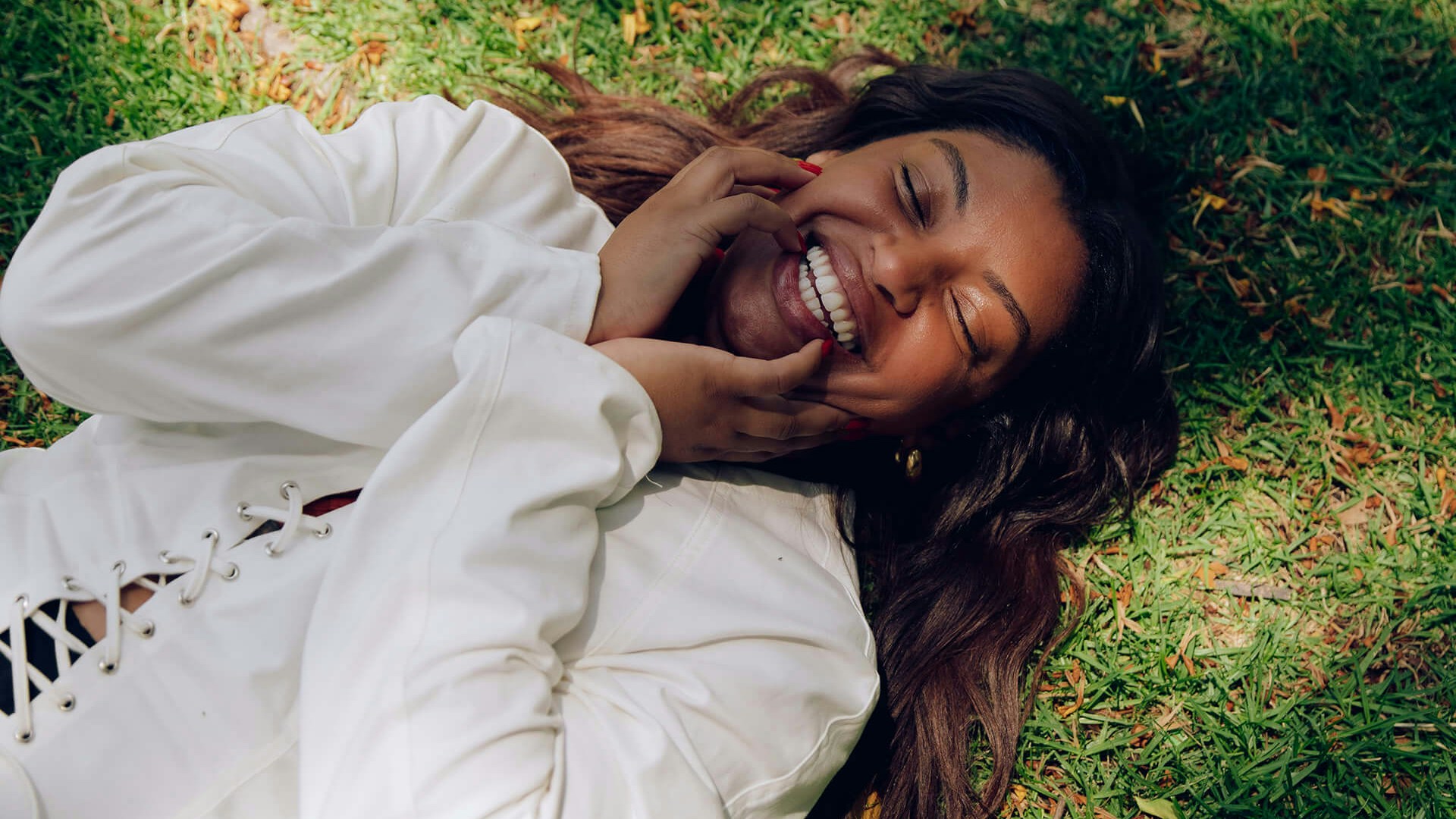
What have your kids taught you?
Elise: I find that I've been really intentional about emotional intelligence and being able to have respectful avenues of communication and autonomy. And Sargent is very good at that. He is very, very good at setting boundaries. He's so good at expressing how something makes him feel. And when he does not want something, I find that he is my inner dialogue, but he just has the audacity to say it out loud. And I think watching him implement his own boundaries is always really inspiring for me and also makes me feel like I'm doing something right.
Evelynn: It’s been so freeing and so healing to see someone in a single digit year of age with full autonomy over themselves and feel emboldened to speak their truth, and it’s like, wow, we deserved so much better when we were little. I’m realizing how much we were taught these people pleasing tendencies and we were taught to put aside our own feelings and literally do all the wrong things. In raising my child, it's also undoing that within me, which has been so liberating in and of itself.
Words: Anna Deutsch
Photography: Max Hemphill
